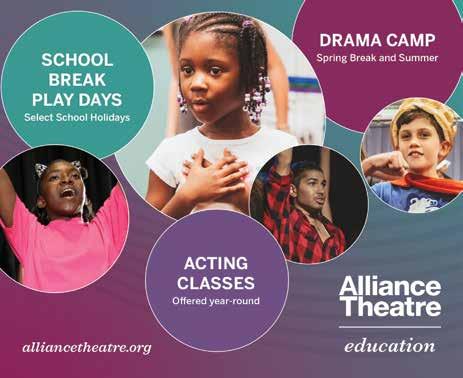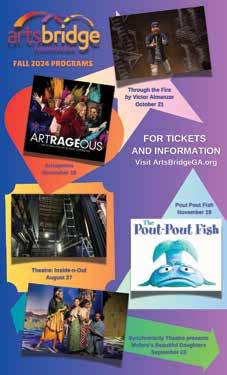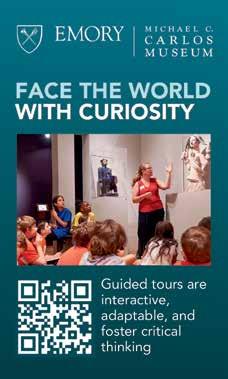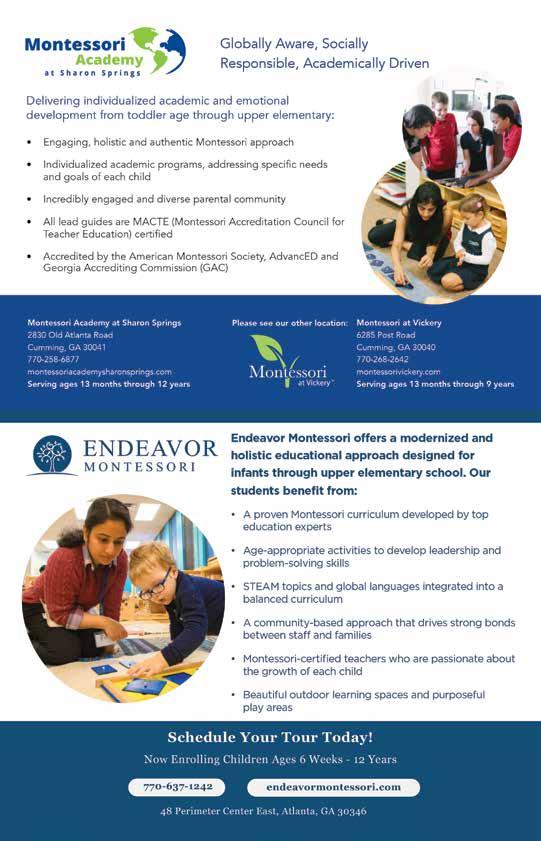Atlanta’s Leading Education Resource Summer/Fall 2024

HOW TO FIND THE RIGHT FIT
EXPERT ADVIC E THE BEST WAYS TO SAVE MONEY FOR COLLEGE MAKING THE GRADE HELP YOUR CHILD RAISE THEIR TEST SCORES
ATLANTA’S EDUCATION LEADERS







Atlanta’s Leading Education Resource Summer/Fall 2024

HOW TO FIND THE RIGHT FIT
EXPERT ADVIC E THE BEST WAYS TO SAVE MONEY FOR COLLEGE MAKING THE GRADE HELP YOUR CHILD RAISE THEIR TEST SCORES
ATLANTA’S EDUCATION LEADERS






We gratefully thank our advertisers for their support of Atlanta School Guide
Publisher/President
PATRICK KILLAM Editor
EVERETT CATTS
Marketing & Promotions
JEFF THOMPSON
Account Directors
SAMANTHA MATTHEWS
JACKIE PETERSON
Contributing Writers
EVERETT CATTS
To search for independent schools by region or neighborhood, turn to page 36 and use the color-coded map to direct you to each region’s page number.
Once you’ve selected your region of interest, the charts beginning on page 38 include a comparison of features for each school in that region, along with the page number for each school’s ad.
Divided into regions of Atlanta, the color-coded maps beginning on page 41 provide each school’s location and page number for their ad.
To find a school or resource by name, turn to the advertiser index on page 97 to find the appropriate page number. 1 2 3 4
TO ADVERTISE CALL 770-873-9390
Space closing for Winter/Spring 2025 issue: October 14, 2024
Atlanta School Guide, Summer/Fall 2024, Volume 19, Issue 2. Published bi-annually by Killam Publishing, Inc., 200 Market Place, Suite 230, Roswell, GA 30075. Atlanta School Guide assumes no responsibility for errors, changes or omissions. Information may have changed since press time, so please verify all information when contacting a school or educational resource. Reproduction in whole or in part of any elements of this publication is strictly prohibited without the written permission of the publisher. © 2024 Killam Publishing, Inc. For additional copies, further information or advertising, please contact: KILLAM PUBLISHING, INC. P: 770-873-9390 F: 844-706-1545
info@killampublishing.com AtlantaSchoolGuide.com
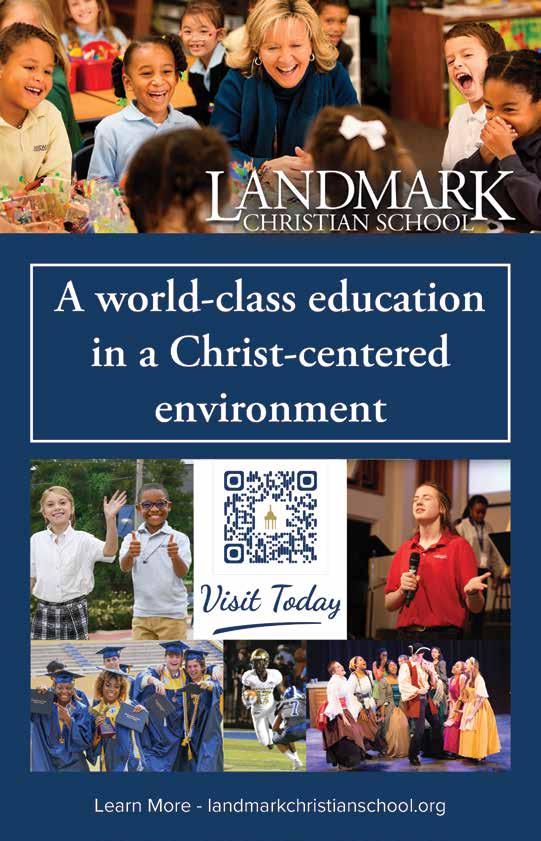
What You Need to Know to Stay Up to Date With Atlanta
APS Students Receive Free Eye Care
Nearly 200 students at Deerwood Academy received free eye exams recently as part of an initiative between Atlanta Public Schools and the Georgia Lions Lighthouse Foundation, thanks to a $50,000 donation from KIA. Free glasses were also provided for those kindergarten through fifth-grade students who needed them.
Pinecrest Academy Honored as Best in Forsyth Pinecrest Academy, an independent Catholic school in Cumming, was named the county’s Best Private School during the recent Best of Forsyth competition. This was Pinecrest’s 10th consecutive year winning the honor. Head of School Jake Rodgers was also honored as Best Administrator. Congratulations to all!
Ranked the State’s Best High Schools
The Gwinnett School of Mathematics, Science & Technology was ranked the best public high school in Georgia, and Fulton Science Academy was ranked the best independent high school by Niche.com. GSMST was also ranked No. 17 in Niche’s list of the best public high schools in the country.
High School Band Performs in D.C.
Jonesboro High School’s Majestic Marching Cardinals marching band wowed a crowd of approximately 40,000 people at the 2024 White House Easter Egg Roll in early April. The 150-student ensemble was invited to perform by First Lady Jill Biden. The Majestic Marching Cardinals are expected to perform at this year’s Macy’s Thanksgiving Day Parade.
Woodward Gymnast Wins State Championship
Sofia Turk, a seventhgrader at Woodward Academy, was named Level 6 Jr. E State Champion at the USA Gymnastics State Championship Meet. Sofia competed in vault, bars, beam and floor, and placed first overall in her division. Congratulations, Sofia!
Assistant Principal Hailed as Best in U.S.
Courtney Walker of Carrollton High School was named 2024 National Assistant Principal of the Year by the National Association of Secondary School Principals in April. Walker was honored for her work with school improvement projects, remedial and gifted programs, student awards and professional development.
Atlanta Independent School to Expand The Boyce L. Ansley
School, an independent school in downtown Atlanta, is expanding to include fifth grade education for the 20242025 school year. The school offers free tuition to students experiencing homelessness, providing buses for transportation as well as mental health support and classes on finance and parenting.
Spend Spring Break at Aquarium
Sixteen seventh- and eighth-grade girls from Gwinnett County’s Sweetwater Middle School spent their spring
break at the Georgia Aquarium. The girls, part of the school’s Science, Technology, Engineering, Arts and Math (STEAM) program, designed and tested remote-controlled vehicles meant to travel in and scan underwater environments.
Forty Marist School students traveled to Japan this spring to experience art through exposure to the country’s culture and nature. The students in Dr. Michael Bieze’s Advanced Placement Art
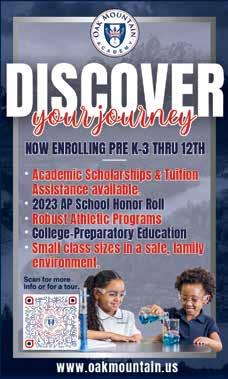
History class began their trip in Tokyo, with stops in Kyoto, Nara and Osaka.
County Launches Farm-to-Table Program
Rockdale County Public Schools recently partnered with the Georgia ACRE Collective to bring locally grown fruits, vegetables and meats to students’ plates. Students at C.J. Hicks Elementary School act as taste testers, trying out new foods made with fresh ingredients provided by Georgia farms and growers.
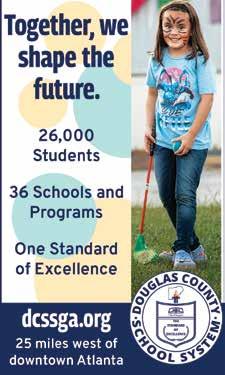
CHARTER SCHOOL A tax-supported public school that is independently run, allowing for greater educational choice for parents in the community.
EXPERIENTIAL LEARNING An educational approach using applied, hands-on methods of learning.
INTERNATIONAL BACCALAUREATE (IB) A specifically designed comprehensive academic program emphasizing traditional disciplines while instilling a global perspective in its students.
MAGNET SCHOOL A public school that offers a specific or enhanced curriculum designed for students of special interest or ability.
MONTESSORI A school following the principles developed by Dr. Maria Montessori, focusing on the unique individuality, self-reliance and independence of children.
SPECIAL NEEDS A school or program for children who have mild to moderate learning differences. It usually features smaller class sizes, individualized attention and multisensory learning methods.
ACCREDITATION Official certification that guarantees a school provides an education of a reasonably high quality. Schools must prove levels of quality and maintain continuous standards of improvement.
ACT An alternative to the SAT, this national college admissions examination consists of subject area tests in English, mathematics, reading and science, with an optional 40-minute writing test.
COLLEGE AND CAREER READY PER-
FORMANCE INDEX (CCRPI) A school improvement, accountability and communication platform for all educational stakeholders that will prepare all Georgia public

Education that applies to children from birth to age 8, focusing specifically on their development, including physical, emotional, sensory, communicative, cognitive and social needs.
(ESSA) The main federal law for K-12 general education covers all students in public schools.
GEORGIA MILESTONES Tests designed to measure how well students in grades 3 through 12 acquire the skills and knowledge outlined in the state-adopted content standards. They replaced the CRCT and involve both multiplechoice and free-response questions.
STANDARDS Statewide standards of academic content for all K-12 subjects, to which every school must adhere and on which students are annually tested.
(Helping Outstanding Pupils Educationally)
Funded by the Georgia Lottery since its founding in 1993, this is a scholarship in the state that rewards academically achieving students with financial
The Georgia Department of Education recognized 177 graduating seniors across the state as 2024 Georgia Scholars, based on all-around success.
assistance to attend eligible public and private Georgia colleges and universities.
MISSION/PHILOSOPHY A statement outlining the guidelines a school follows as it works to achieve its various educational goals and/or maintain its performance standards.
The date by which an independent school notifies families of the acceptance of a child for enrollment to the school.
OPEN HOUSE An event held at a school where parents can learn more about the school and its offerings.
PSAT A standardized test that offers students practice for the SAT Reasoning Test and allows them to qualify for the National Merit Scholarship Program
REPLY DEADLINE The date by which parents must notify an accepting school of their commitment to enroll their child at the school.
SAT This standardized test, known as the Scholastic Aptitude Test, measures the reading, writing and mathematical reasoning skills of students planning to attend college.
TEST (SSAT) The admissions test that many independent schools require students take in order to be considered for enrollment.
SUMMER CAMP A common destination for children and teenagers during the summer, at which they can participate in a variety of activities or classes.
Many local and national organizations work to bring out the best in summer camps and public, private and boarding schools by identifying schools that meet certain standards through accreditation. These groups also set policies, research educational advancements and offer services to the educational communities both in Atlanta and in Georgia. The following are just some of the associations and organizations you should know in your search for the best educational experience for your child.
The Association of Boarding Schools (TABS) boardingschools.com
This organization of 250 boarding schools serves the professional development needs of boarding schools and provides information to potential students and their families.
Association Montessori Internationale (AMI) ami-global.org
Recognizes and provides
support, training and development to schools that strongly adhere to Montessori method principles and practices.
Atlanta Area Association of Independent Schools (AAAIS) aaais.org
Promotes the highest standards and best administrative practices for accredited independent schools in the metro Atlanta area.
Cognia cognia.org
Formed from the merger of two organizations (AdvancED and Measured Progress), it advances education excellence through accreditation and school improvement initiatives.
Department of Education (DOE) gadoe.org
A statewide, policy-driven organization governing the public school system of education in Georgia for grades K-12.
Georgia Association of Christian Schools (GACS) gacs.org
Uses generally accepted indicators of quality, voluntary self-improvement and peer review to measure Christian schools.
Georgia Association of Private Schools for Exceptional Children (GAPSEC) gapsec.org
This state organization of independent schools for students with learning disabilities maintains a code of ethics and shares information about programs at member schools.
Georgia Independent School Association (GISA) gisaschools.org
An association of Georgia’s private, independent and parochial schools, dedicated
to serving the professional growth, advocacy and interscholastic needs of member schools.
National Association for the Education of Young Children (NAEYC) naeyc.org
A professional membership organization working to promote high-quality early learning for all young children, birth through age 8, by connecting early childhood practice, policy and research.
National Association of Independent Schools (NAIS) nais.org
A membership association
providing research, leadership and governance guidance and professional development opportunities for school and board leaders in U.S. independent schools.
National Association of Private Special Education Centers (NAPSEC) napsec.org
Represents private specialized education programs by promoting quality programs and services for individuals with disabilities and their families.
Southern Association of Colleges and Schools (SACS) sacs.org
The recognized regional accrediting body for both public and private schools in the 11 U.S. Southern states.
Southern Association of Independent Schools (SAIS) sais.org
Provides accreditation services, professional growth opportunities and leadership development programs for 375 independent U.S. schools.
For more information about these and other organizations and associations that ensure quality education among camps and schools, visit the websites of the Georgia Department of Education (www.gadoe.org) or the U.S. Department of Education (www.ed.gov).
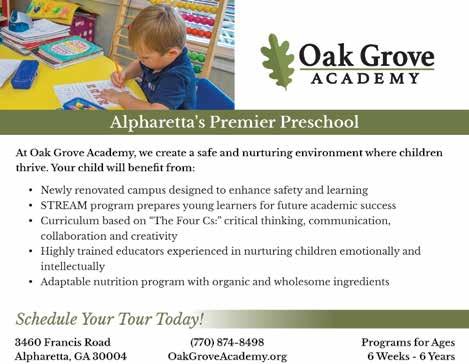
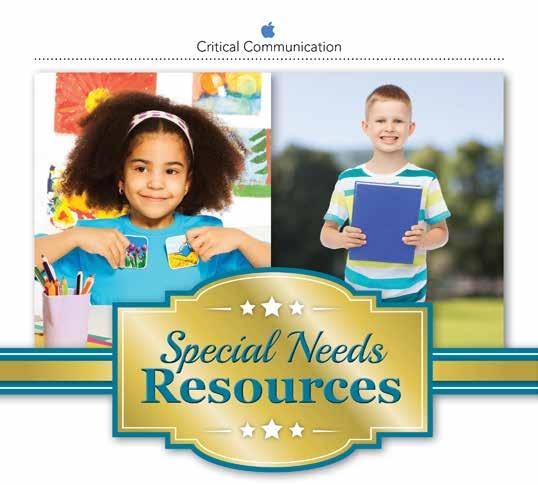
A learning disability is a neurological disorder that affects how your child processes certain information. Children with learning disabilities are as smart as or even smarter than other children, but may face challenges with reading, writing, spelling, reasoning and other functions. As a result, they often struggle to achieve in traditional classrooms. There are many types of learning disabilities, from Attention Deficit Hyperactivity Disorder (ADHD) and dyslexia to more serious forms such as autism.
Special needs schools are those that serve children who struggle with learning disabilities or don’t perform well in a conventional school environment. These schools use alternative approaches to instruction in order to help children learn more effectively and also achieve success in the classroom and in social settings. Other schools don’t specifically target those with learning disabilities, but may teach different kinds of students who have had difficulty learning in a typical class-

room setting. Others may teach average or even above-average learners while also offering additional programs and classes for students with learning differences.
First, it’s important to identify your child’s specific challenges. Students who exhibit average or above-average intelligence but often seem distracted and don’t perform well in a traditional classroom setting may be struggling with dyslexia, Asperger’s syndrome, ADHD or some other disorder that affects their ability to learn effectively. Also, disruptive or aggressive children may be exhibiting frustration brought on by a learning disability.
If you suspect your child may have a learning dis-
ability, it’s critical to have him or her evaluated by a mental health professional. A diagnosis is necessary in order to address the child’s educational needs.
A professional evaluation is crucial in order to evaluate your child’s educational needs.
If your child is diagnosed with a learning disability and attends public school, talk with the principal, school counselor or another administrator about developing an Individualized Education Program (IEP). All public schools are required to create an IEP for students with learning disabilities who meet special education requirements. An IEP is a document that specifies your child’s learning situation and educational needs and outlines a course of action for teachers and other professionals to follow to help make sure your child learns to the best of his or her ability. u
If you feel your local public school isn’t the right environment for your child or simply want to explore all your options, there are many quality independent schools in metro Atlanta devoted to helping children with special needs and learning issues. Visit the Georgia Association of Private Schools for Exceptional Children’s website (gapsec.org) or our listings for special needs schools on page 98 to help you with your search.
All special needs schools are not the same. The first step is to identify those schools that can address your child’s specific learning difficulty, and offer the level of special needs instruction that you (and perhaps a professional) feel is best for your child.
You may be more comfortable enrolling your child in a school that focuses specifically on his or her needs, or you may want a more diverse environment where he or she can interact with many different kinds of students. Familiarize yourself with the different options offered by each kind of school.
Traditional independent schools that offer special needs programs as part of a larger curriculum can offer that kind of environment, but may have larger class sizes than schools that specialize in specific learning disabilities. These kinds of schools may also focus more on academics than on the therapeutic aspects of special
needs education. Independent special needs schools can offer more individualized instruction and a more structured and predictable environment, and are likely to address nonacademic issues such as social skills and self-esteem.
As you begin searching for the right school for your child’s situation, here are some questions to keep in mind:
• Will your child fare better in a school that focuses on his or her specific learning disability, or would you rather that he or she be able to interact with students with a wide range of learning capabilities?
• Does the school serve a specific age range or work with students on all grade levels? Many students with learning disabilities have trouble transitioning to new schools.
Identify those schools that can best address your child’s specific learning difficulty.

• Does the school offer a variety of extracurricular activities, including arts and sports programs?
• Is the school accredited? If so, by which organizations?
• Is the staff certified to instruct special needs children or those with your child’s specific learning difficulty?
• Does the school focus more on academics or on addressing the child’s therapeutic needs?
Many independent special needs schools participate in the Georgia Special Needs Scholarship program (GSNS), a school choice program available to special needs students attending Georgia public schools. It offers funds to offset tuition and
fees at participating private schools authorized by the State Board of Education. According to the Georgia Department of Education, scholarship amounts range from $2,500 to $13,500, with an average amount of about $6,000.
The Qualified Education Expense Tax Credit program provides another scholarship option. Donations are made to an organization known as a Georgia Student Scholarship Organization (GaSSO), which uses the money to award scholarships to students in pre-K through grade 12. Many schools also offer their own scholarships or tuition assistance programs as well. Contact individual schools for details.
For more information on special needs schools and resources, please see our listings on page 98.
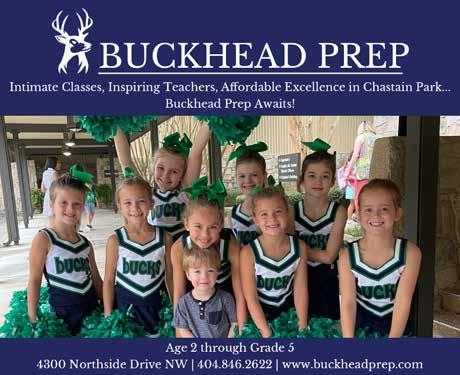
Asperger’s Syndrome: A developmental disorder on the autism spectrum, characterized by high intelligence, difficulty with social situations and repetitive patterns of behavior and interest.
Attention Deficit Disorder (ADD): An outdated term used to refer to the inattentive form of ADHD, in which a person is typically inattentive or distractible, but not hyperactive or impulsive.
Attention Deficit Hyperactivity Disorder (ADHD): A brain-based syndrome affecting the regulation of functions including attention, concentration, memory and impulsivity.
Autism Spectrum Disorder:
A developmental disorder affecting the ability to communicate and interact. Symptoms include repetitive behaviors; intense, narrow interests and sensory sensibility.
Dyslexia: A learning disability that impairs specific language skills, particularly reading.
Georgia Association of Private Schools for Exceptional Children (GAPSEC): An organization of independent schools serving students with learning disabilities and differences.
Georgia Special Needs Scholarship (GSNS): A school-choice scholarship program for special needs students being served by an IEP in Georgia public schools.
Individualized Educational Program (IEP): A written statement that outlines the needs of a public school student with learning disabilities and creates a customized plan for meeting those needs.
Individuals With Disabilities Education Act (IDEA): The federal law that governs how states and public education agencies that accept funding under the law address the educational needs of students with disabilities.
Learning Disability: A neurological condition that affects how one processes information. Learning disabilities can impair reading, writing, speech, math, reason, memory, attention and coordination, as well as social skills and emotional maturity.
Multisensory Instruction: An educational approach involving the use of all of a child’s senses, not just sight and hearing, to help with understanding concepts and solving problems.
Response to Intervention (RTI):
A process used by educators to help identify and address the needs of students experiencing behavioral or educational challenges, based on screening, instruction and assessment.
Student Scholarship Organization (SSO): An organization authorized by the state of Georgia to receive funds and award scholarships under the Georgia Qualified Education Expense Tax Credit program.
In July, Elizabeth Lener will complete her first year as head of school at Springmont, her 27th year as an educator. She has a bachelor’s degree from Binghamton University and a master’s degree from Lewis & Clark College. She spent the previous eight years at the Burgundy Farm Country Day School.
What is your educational philosophy? When we put children at the center of our work, it becomes our compass and guides our actions as teachers. This is why the best educators invite their students to make choices about what and how they learn and involve students in decision-making.
How is the field of education changing? The pandemic made it clear how important in-person education is and how essential teachers are in our communities. The relationship between students and between students and teachers cannot be replaced by technology.
How can parents best contribute to the education process? We view ourselves as parents to parents in their child’s educational journey. The relationship between school and home is crucial.
What do you love most about your job? I love that I get to work with such a
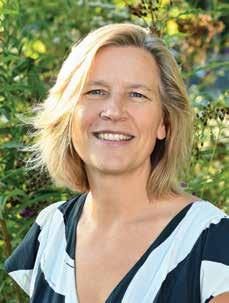
diverse group of people, help a school community fulfill its mission, and that there’s a new learning opportunity waiting for me every day.
What advice would you offer parents about their children’s education? I would advise parents to explore a range of schooling options for their child, talk to other parents about their experiences, ask deep questions of potential schools, and use your child’s needs as your guide when making a choice.
Emphasis: Springmont’s authentic Montessori experience balances academics with socialemotional well-being.
Year Founded: 1963
Grades: 18 months–8th grade
Students: 260
Avg. Class Size: 20
Tuition Range: $13,165-$28,485
Accreditations or Affiliations: AMI, AAAIS, GISA, SAIS/Cognia, NAIS
Location: 5750 Long Island Dr. NW, Atlanta, GA 30327
Contact: 404-252-3910, springmont.com
 BY EVERETT CATTS
BY EVERETT CATTS
IT’S EASIER THAN EVER TO FIND THE RIGHT FIT
One of the positive outcomes of the COVID-19 pandemic when students were confined to remote learning for months or longer is that there is a much wider variety of school options available to choose from. Now more than ever, parents can be in more control of their child’s education.
There are many reasons you might want to explore your child’s education options beyond what’s offered by your local public school system. You may feel your child isn’t being challenged in a public school setting and could benefit from a more rigorous
curriculum. Or you might just want to have more direct involvement in their education.
Whether you’re looking for religious or character-based instruction, or you want smaller class sizes or the ability for your child to alternate between in-school and at-home learning, the good news is that there are many additional options available today than ever before.
Charter schools are free public schools that enjoy more freedom from certain state or
local regulations than regular schools. These schools commit to specific educational goals in return for the charter that allows them to operate the school.
Charter schools permit parents to “have a degree of choice in their students’ educational programs by offering unique educational programs and models that may not be available in a student's zoned neighborhood school,” says Matt Underwood, executive director of Atlanta Public Schools’ Office of Charter & Partner Schools.
APS has 19 charter schools, including its first, Drew Charter, which opened in 2000.
Richard and Nekeidra Taylor have three children, all of whom attend charter schools. Mason, 11, attends Drew, and Breanne, 8, and R.J., 12, attend Westside Atlanta Charter. Nekeidra says they enrolled their children in charter schools because “we felt like the education and just the curriculum would be better for them from a perspective of challenging them a little more.”
Due to the popularity of charter schools,

Due to the popularity of charter schools, students are selected through a lottery system.
students are selected through a lottery system, and the Taylors were lucky enough to enroll all three of their kids the first year they applied.
“The thing I like the most about charter schools is the sense of community and the parent involvement,” Nekeidra says. “There’s definitely a difference.”
Another option is a classical school, which is a public charter school that uses the classical model. The mission of a classical school is to develop not only students’ minds but also their character through curriculum that stresses virtuous and traditional learning and civic responsibility.
“We acknowledge the parent as the first and primary educator of the child,” says Josh Andrew, head of school for APS’ Atlanta Classical Academy in Buckhead. “So we respect and cherish our parents’ roles in educating their children and see ourselves as partners.”
This approach definitely has its fans. Atlanta Classical has 1,600 students on its wait list to attend the school, Andrew says.
A sister classical school, Northwest Classical Academy in Kennesaw, just opened in 2021 and has a wait list of over 1,000 students.
Home-schooling is a program where parents can teach their children classes from home. Maxcine Bland, a Fulton County

resident and single mother, has homeschooled all four of her children, three of which are now adults.
All four kids struggled with attending other types of schools, including traditional and charter public schools, private schools and a virtual school. Bland says her youngest daughter, Amaria, 12, has thrived since switching to home-schooling.
“What my daughter was missing was me, so what I was always willing to do was to figure out which direction I should go in so she could have the best education possible,” she says.
Hybrid schools are independent schools that combine traditional classes with home-schooling. At The King’s Academy in Woodstock, students attend classes on campus two days a week with full instruction, and then take classes at home administered by their parents.
Jason and Kendra Hopkins’ daughter Sophi, a fifth-grader, started attending King’s Academy in August 2023 after attending
public schools for kindergarten through fourth grade.
“Our biggest reason is to have more access to Sophi’s education and what she’s learning,” Jason says of the decision to enroll her in the school. “Also, we have more time with her on a one-on-one basis. We chose the school, too, mainly because it was a Christian school. We liked the hybrid format because it’s a nice blend of having in-school instruction with at-home administration.”
One benefit of the hybrid format, he says, is that it allows Sophi to have more time outside when at home, and like at a traditional public or private school, she can take part in extracurricular activities including sports and the arts.
Independent schools, also known as private schools, offer a variety of benefits, from small class sizes to religious instruction and specific styles of education like Montessori. Students often benefit from more personalized attention and more
flexibility when it comes to following subjects that interest them.
At Woodward Academy, a two-campus Atlanta independent school for pre-K through 12th grade, educators take the time “to get to know every student so they can grow to their fullest potential,” says Nigel A. Traylor, vice president for academic and student life.
“At Woodward students are able to mix and match the level of challenge for their courses to help them flourish in areas where they have strong aptitude and to get support in areas where they need more reinforcement,” he says.
Micro-schools, also called learning pods, are schools that reimagine the one-room schoolhouse, with less than 15 students per class or less than 150 students total. Andrew Shahan, founder and executive director of Acton Academy in Buckhead, says the school has high standards for its students, meaning they must get a 90% grade or above to pass a class.
“It’s project-based learning on steroids,” Shahan says. “This is real-world stuff. In our particular education, it’s much more challenging. You are not just directed by an adult, but you have to take responsibility.”
Another option is virtual schools, which feature 100% remote learning. Fulton Academy of Virtual Excellence (FAVE), a school for grades 3-12 in the Fulton County School District, opened in 2021 and had about 480 students during the 2023-24 academic year..
The school allows students who perform well enough academically to take classes outside the traditional school hours, says Principal Taylor Barton.
“While it’s online, our students are not
alone,” he says. “They’re able to connect with like-minded students, and parents are our biggest fans. A lot of our new enrollees are coming through word of mouth.”
Anatavia Benson, a south Fulton mother, enrolled all three of her children twin 13-year-old daughters and a 15-year-old son in FAVE partly because her family is immunocompromised, and because they were already used to online classes due to learning remotely during the pandemic.
Benson feels that the teachers at FAVE are more attentive than at her kids’ previous schools. One teacher even helped notice quirks in her son’s behavior, leading to a diagnosis of ADHD and autism.
Now that you know more about the additional options that are available to you and your child, you can zero in on the type of school that you feel best fits their needs.
Acton Academy actonbuckhead.org
Atlanta Classical Academy atlantaclassical.org
Atlanta Public Schools atlantapublicschools.us
Fulton Academy of Virtual Excellence fultonschools.org/onlineschool
Georgia Charter School Commission gacharters.org
Georgia Home Education Association ghea.org
Georgia School Choice edchoice.org/school-choice/state/georgia
The King’s Academy thekingsacademy.org
Woodward Academy woodward.edu


“Learning loss” is a term that’s used to describe a decrease in academic skills the kind that students often experience during summer break.
When the COVID-19 pandemic caused schools to switch from in-person classes to online instruction in 2020, many students experienced learning loss due to the disruption of their school routine and the chal-
lenges of adjusting to remote learning. And although schools have long since resumed inperson learning, traditional measurements of academic progress have continued to decline.
Four years later, how have Atlanta-area children been affected? What are public and independent schools doing to address learning loss? And what can you do to help your child succeed academically?
The main standardized test that Georgia uses to measure academic achievement or decline in its public schools is the Georgia Milestones Assessment System. Educators saw a drop in reading and math scores on the Milestones test during the pandemic.
According to the Georgia Department of Education (GDOE)’s website, in the winter 2019 end-of-course Milestones test, which was given in February 2020, at least 65.5% of students in grades 3-8 scored at their grade level or above in all reading and English classes. At least 65.9% of students in grades 3-8 scored at the developing learner and above level in all math classes.
In the 2020-2021 academic year, those scores dropped to at least 57.6% for reading and English and 61.4% for math. The following academic year saw some improvement, with scores rising back up to at least 69.1% for reading and English and 58.9% for math. Testing at the end of the 2022-23 school year showed that scores dropped again, declining to at least 67.4% for reading and English and 58.1% for math.
Meghan Frick, GDOE’s director of communications, says that students’ learning loss on the Milestones test wasn’t that bad, but there’s still room for improvement.

“Those decreases were not as large as we initially expected,” she says. “However, there were decreases in scores. We have seen them slowly rebound, but we’re not where we need to be yet.”
Matt Cardoza, GDOE’s director of external affairs, says the state has other methods besides the Milestones test to measure students’ performance, namely the SAT, the ACT, and the Career and Carrer Ready Performance Index (CCRPI).
Students at independent schools also saw a drop in performance, but not to the same extent as their public school counterparts. This is partly because they returned to in-person classes in August 2020, before most public schools did.
Michelle Marriott, director of admissions at Heritage Preparatory School in Atlanta, says the school’s students didn’t experience learning loss because it used remote learning only for the last two months of the 2019-20 school year. u

Kelly Swanson, dean of academics at Mount Paran Christian School in Kennesaw, says its students had difficulties because they weren’t used to remote learning. But by returning to in-person classes as soon as possible, the issue was minimized.
Similarly, learning loss at Woodward Academy in College Park saw only “a very slight drop in standardized test scores” by returning to in-person classes in August 2020, says Connie White, director of learning design.
Georgia’s public K-12 schools received $5.2 billion in federal funds from three COVID-19 relief laws: the Coronavirus Aid, Relief and Security (CARES) Act, the Consolidated Appropriations Act and the American Rescue Plan Act (ARPA). But with the last of those federal funds going away on Sept. 30 (unless recipients get an extension), the state is allocating millions to continue to address students’ learning loss.
Georgia is spending $117.7 million to continue programs that will end later this year when the last of those pandemic relief funds expire. Most of those state funds will go toward programs that were tied to addressing learning loss. Those programs include tutoring, formative assessments and support for educators, a focus on literacy, and school improvement.
Independent schools have employed similar tactics to tackle the issue. Mount Paran had teachers at all grade levels “review and reteach previously taught concepts so that students could build upon those foundations,” Swanson says. Teachers are “focusing on basic skills and differentiating our instructional practices to meet the students where they are” to develop positive relationships with students to assess each one’s level of need and then improve their scores.
At Woodward, teachers worked over the last summer to formulate a plan to offer “remediation and enrichment opportunities” during the school year for students who needed help, White says. The school has
seen students’ grades and scores improve “across the board,” and a heightened focus on student-teacher relationships has also helped accomplish those goals.
If you feel a school isn’t doing enough to help your child, you do have options, Frick says.
“We encourage parents to engage with their child’s school and school district to discuss their concerns and work together on a solution,” she says. “They can bring their concerns to their child’s teacher, principal, district superintendent or locally elected school board representative. They may also contact GaDOE with questions at askdoe@ doe.k12.ga.us.”
“One of the things parents can do is stay
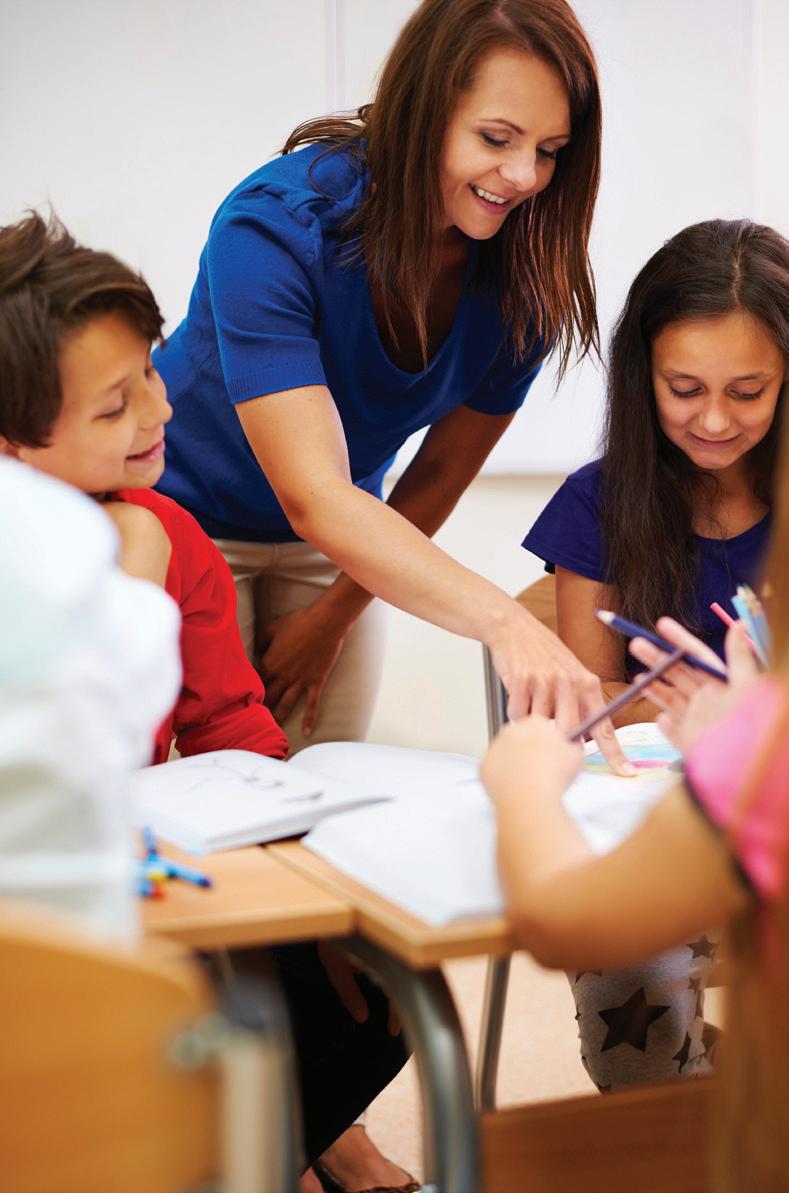
abreast of where their children are in terms of academic success,” says Cliff Jones, chief of staff for Fulton County Schools. “There’s nothing more important than knowing what skills your child has mastered and what skills they’re having some problems with. That really goes to reaching out to the teacher, having that two-way conference.”
Mount Paran’s Swanson says parents of younger children should read to them often to increase curiosity and to make learning fun. Also, she says, Mount Paran urges parents to partner with their children’s teachers “to maximize learning at all grade levels.”
Woodward’s White, meanwhile, offers six strategies parents can use to help their children improve their grades or test scores:
• Provide a structured routine to help children learn to manage their time.
• Create a conducive study environment that is quiet and free from distractions.
• Encourage reading by providing access to a variety of books and reading materials.
• Limit screen time and encourage children to engage in regular physical activities.
• Engage in educational activities such as visiting museums, libraries and cultural events to enhance their understanding of and interest in a variety of subjects.
• Foster a growth mindset by praising effort and persistence over innate ability.
Every child’s situation is different, but by maintaining an open line of communication with your child’s teachers and giving your young learners the support they need, you can help them improve their academic performance and put them in the best position to succeed.


$aving for your child’s future education may seem like a hopeless task. College tuition rates continue to rise, which can make paying for higher education feel unattainable.
But don’t give up hope. There are options available that can help you put money away for your child’s college years while also helping you during tax season. Here are a couple of expert-recommended steps you can take now to help guarantee a brighter future for your children.
The first thing you should consider is setting up an account through the Georgia Path 2 College 529 Plan, which is the state’s only such plan that allows for tax-free savings for your child’s college education.
The plan allows parents to deduct up to $8,000 a year per child from their taxes to pay for their tuition, room and board, books, devices and so on, says Mitch Seabaugh, the plan’s executive director. Single parents
The first thing you should consider is setting up an account through the Georgia Path 2 College 529 Plan, which is the state’s only such plan that allows for tax-free savings for your child’s college education.
can deduct up to $4,000 per child per year.
“Anybody who’s looked at the cost of college education here lately knows the average for a state school, four-year degree is pushing $100,000,” Seabaugh says.
“College is expensive. The plan started in 2002 as a vehicle that could help parents save for college for their loved ones children, grandchildren, nieces and nephews. This plan allows parents to work towards meeting that cost challenge they’re going to have.”
The plan can be used for nearly every two-year and four-year college in the nation, plus study-abroad and postgraduate programs.
One benefit of such plans is that they can increase a child’s likelihood of attending college. “There was a study that a child that had a college savings account, regardless of the amount of money in it, was seven times more likely to go to college,” Seabaugh says.
Kevin McKane, a certified financial planner and chartered retirement plans specialist with Schultz Wealth Management of Janney in Buckhead, says he advises his clients to use Georgia’s 529 plan because of its aforementioned benefits. With parents being able to deduct up to $8,000 per child from the state income tax, “That really translates into a $400 to $500 tax benefit for that individual,” he added.
But Georgia’s 529 plan is just one way to save for your children’s education, McKane says. Another option is to max out the IRS’s
gift tax exemption. In simple terms, this means that you can avoid paying taxes on monetary gifts or donations you make to your children’s education. For 2024, the exemption allows per-child contributions of $18,000 for single filers and $36,000 for joint filers.
“We use that as a great estate planning tool, especially for grandparents who want to lower their taxable estate,” he says.
In 2018, the law regarding Georgia’s 529 plan was amended to allow parents to also save for their child’s K-12 education. Relatives can set aside as much as $10,000 per child per year for that purpose. u


While McKane acknowledges that as a viable option, he advises his clients to take a different approach.
“We would rather see families fund toward the college education and rely on either cashflow or income to cover K-12 education versus taking it out and defeating the tax-deferred growth,” he says.
Georgia is not one of the 13 states that has laws allowing for Education Savings Accounts (ESAs), which are publicly funded, government-authorized savings accounts for K-12 education, according to edchoice.org. But if they qualify financially, Georgia parents can participate in a similar government subsidy program, McKane says.
Alternatively, parents and relatives can
set up a Uniform Transfers to Minor Act (UTMA) account, which allows gifts like art and real estate to be transferred to a minor without establishing a trust, and has tax credits that a family can access for K-12 education, he says.
McKane says there are several do’s and don’ts when it comes to saving for your children’s education:
• Do get a plan in place. “Do an education-savings analysis,” McKane says.
“That way you know what college costs will be in today’s dollars and how much savings or additional savings you will In 2018, the law regarding Georgia’s 529 plan was amended to allow parents to also save for their child’s K-12 education.
Relatives can set aside as much as $10,000 per child per year for that purpose.
need, based on what you’ve already put away. Then you’ll know what other contingent or alternative options are available to make a plan.”
• Do make monthly contributions. “Treat it like a 401K plan where you have money auto-drafted into the education savings,” he says.
• Do encourage other family members and friends to donate to a child’s 529 plan instead of buying them a gift. “Anyone can contribute to a 529 on some one’s behalf,” he says.
• Do consult with your accountant before making any withdrawals to pay for education-related expenses to confirm that they’re qualified under the plan.
• Don’t start or stop investing based on market volatility, McKane says. Now you’re ready to begin socking money away to help prepare for your child’s future. Just make sure to talk to a financial adviser to ensure that you’re making the right decisions based on your family’s budget and needs.
Georgia Path 2 College 529 Plan
path2college529.com
IRS Gift Tax Exemption
https://bit.ly/4aFeVYK
Uniform Transfers To Minor Act Account https://bit.ly/4aAIV85
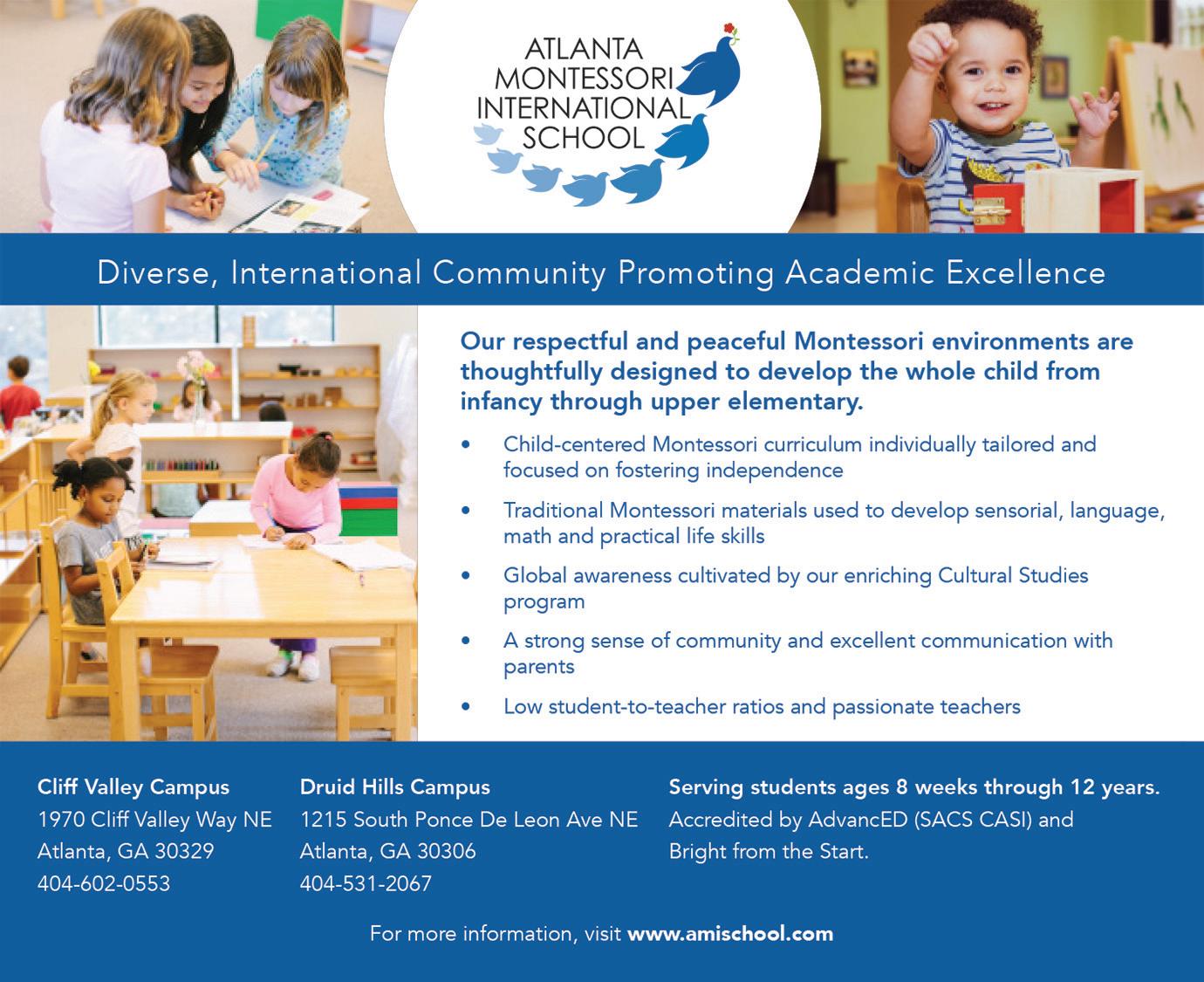
Metro Atlanta’s K-12 schools are led by a variety of top-notch educators from diverse career backgrounds. This special section introduces Atlanta parents to heads of school, principals, presidents and admissions directors at some of Atlanta’s finest schools.
In this section you will learn about these leaders’ unique perspective on education and how they set the tone for their schools to nurture and guide your children to success. The following profiles represent some of the top leaders in metro Atlanta’s schools.

Dr. F. Stuart Gulley, Ph.D., became the seventh president of Woodward Academy in 2009, and has led the institution to prominence as Atlanta's most diverse private school. Dr. Gulley, who was previously president at LaGrange College for 13 years, is a Nashville native with degrees from Vanderbilt University and Emory University’s Candler
School of Theology. He completed his Ph.D. at Georgia State University.
Under his stewardship, Woodward believes every student possesses unique potential. The school nurtures this potential across a spectrum of disciplines, from mathematics to the arts, and emphasizes the importance of moral and ethical learning. Dr. Gulley's leadership has earned him accolades, including Most Admired CEO in Education and being named among Atlanta's most influential leaders.
Woodward’s educational approach extends beyond academic excellence, aiming to cultivate graduates equipped with lifelong habits of heart and mind. Dr. Gulley believes in education that prepares students not just for college, but for a life of meaningful contributions and purpose, making Woodward Atlanta students the very best.
For more information, call the Main Campus, College Park, 404-765-4000 (Pre-K to 12) or the North Campus, 404-765-4490 (Pre-K to 6), Johns Creek, or visit woodward.edu
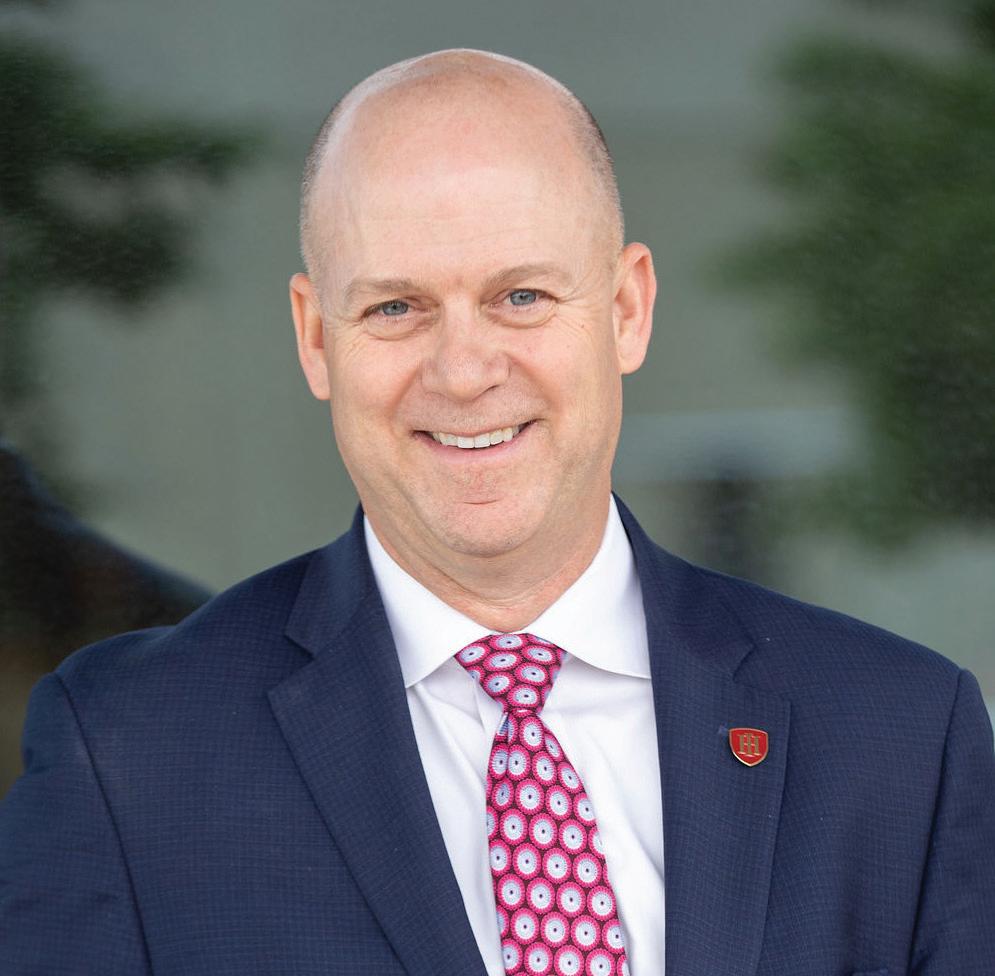
Paul A. Barton has served as head of Holy Innocents’ Episcopal School since 2014. Under his leadership, HIES has become one of Atlanta’s top-choice independent schools, known for excellence in academics,
BYRONAkron, Ohio, native Byron F. Wilson founded The Wilson Academy when he was only 25 years old. Twenty-plus years later, the school produces some of the most competitive students in the nation. Built on a Critical Thinking Skills philosophy, this K-12 academy provides a unique experience that includes financial education and international travel. In January 2025, TWA will open a campus in Johannesburg, South Africa. Warrior alumni boast millions of dollars in college scholarships earned and exemplary professional accomplishments, and even produced Spelman College’s youngest-ever student, Wilson’s daughter Sydney Wilson, who began at age 14.
Byron F. Wilson is driven by challenging norms in the interest of what works and believes that education should consistently be
athletics and fine arts as well as a genuine culture of community.
Together with the board of trustees, Mr. Barton crafted and implemented a five-year strategic plan and the completion of a campus master plan, which culminated with the launch, and the eventual successful completion, of a $32.5 million campaign – the largest in school history that transformed the campus for a new chapter of growth in facilities and programs.
Mr. Barton holds a master’s degree in education, administration and supervision from DePaul University, a master of arts in liberal education from St. John’s College and a bachelor of arts in history from Loras College.
HIES is located at 805 Mount Vernon Hwy. NW, Atlanta, GA 30327. For more information, call 404-255-4026 or visit hies.org.

challenged and rethought. Wilson has created a truly student-driven program, which makes it easier to ensure the school’s curriculum is relevant and value-added.
TWA is located at 2360 Old Covington Hwy. SW, Conyers, GA 30012. For more information, call 678-591-1044 or visit thewilsonacademy.org.
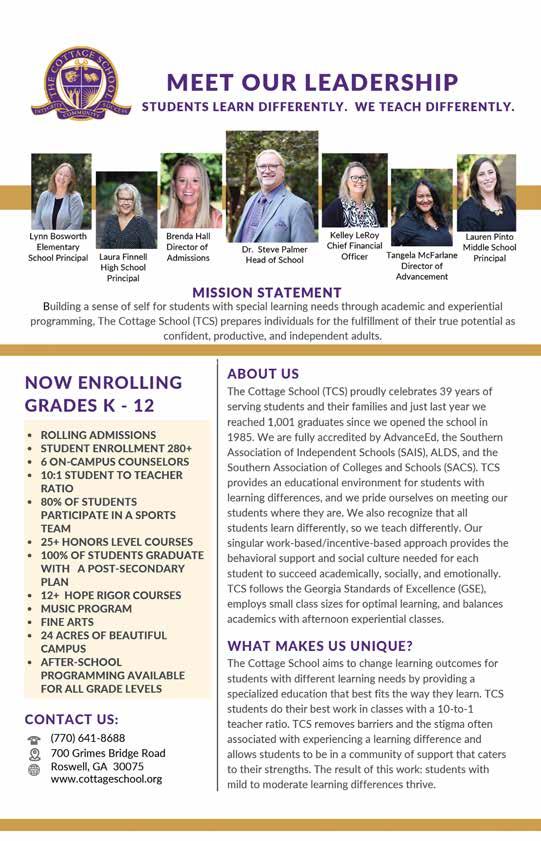
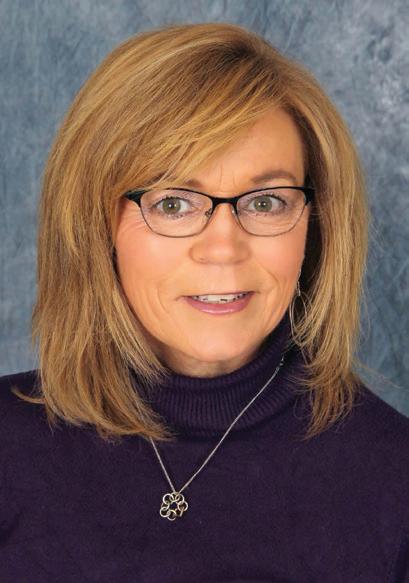
Holding a master’s degree in educational leadership from the University of Georgia, Colette Staak brings over 40 years of educational experience to her role as Head of Saint Francis School. Her vision and passion for the school over the past 28 years have impacted thousands of students. Colette’s unparalleled commitment to challenging and equipping students for success in college and in life has
helped students thrive at Saint Francis and beyond.
Saint Francis is an independent collegeprep school where all students are challenged to reach their full potential. Colette's passion for the school is rooted in a commitment to every student's success. Saint Francis provides a nurturing and inclusive environment where students thrive. The school’s emphasis on learning for mastery, small class sizes and multimodal learning methods ensures that every student has the opportunity to succeed and excel, instilling confidence in their educational journey.
For more information, call 770-641-8257, ext. 156 (Roswell, Grades K-8) or 678-3399989, ext. 33 (Milton, Grades 9-12) or visit saintfrancisschools.com
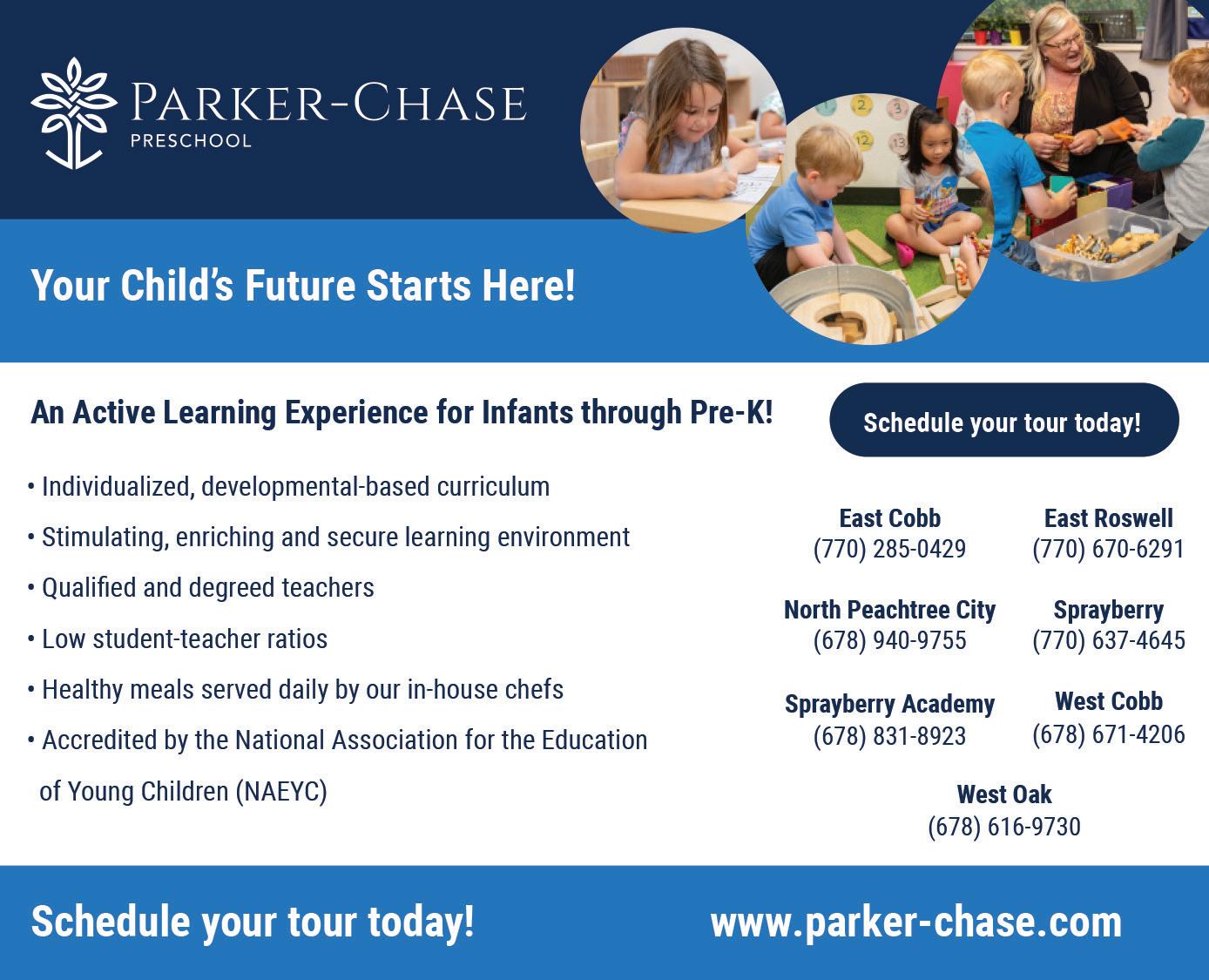
area map
For features of independent schools, turn to Education At a Glance on pg. 38. For public school system information by county, turn to pg. 79.
3 3
2
2
1 1
5 5
Boarding Schools Florida, Georgia, Illinois, Maine, Maryland, North Carolina, Tennessee, Virginia, West Virginia
Public School County Guide
Educational Resources Tutoring, Summer Camps and Activities, Field Trips and Education Programs.
REGION 4: Atlanta South/ Southeast/Southwest Carrollton, Eagles Landing, Fayetteville, Locust Grove, Metro-Atlanta, Sharpsburg, Peachtree City p.65
REGION 5: Atlanta West Buckhead, Kennesaw, Powder Springs, Smyrna/Vinings
REGION 1: Atlanta North/Northwest
REGION 2: Atlanta North/Northeast
Alpharetta, Duluth, Suwanee, Dunwoody, Johns Creek, Peachtree Corners, Roswell p.54 p.61
Alpharetta, Buckhead, Chastain Park, East Cobb, Marietta, Roswell, Woodstock p.49
REGION 3: Atlanta East Ansley Park, Athens, Dacula, Decatur, Midtown, Morningside, Northeast Atlanta p.41
REGION 3: Atlanta East Athens, Bethlehem, Collins Hill, Decatur, Loganville, Midtown, Morningside/Ansley, Stone Mountain
*KEY:
Religious Affiliation: B = Baptist C = Christian
E = Episcopal J = Jewish JC = Judeo-Christian
M = Methodist ND = Non-denominational P = Presbyterian
Q = Quaker RC = Roman Catholic
This information reflects the latest available data at publication time. Please confirm with each individual school.
*KEY:
Religious Affiliation: B = Baptist C = Christian
E = Episcopal J = Jewish JC = Judeo-Christian
M = Methodist ND = Non-denominational P = Presbyterian
Q = Quaker RC = Roman Catholic

Alpharetta Once a small farming community, Alpharetta’s growth has exploded in recent years, and the North Fulton city is now one of Atlanta’s most affluent neighborhoods, creating the perfect mix of country living and lots of city amenities.
Woodstock Located in Cherokee County, Woodstock is, as locals say, “where modern amenities meet old Southern charm.” Historic Olde Towne pays a continual tribute to Woodstock’s pioneers through vintage shops and good old-fashioned Southern hospitality.
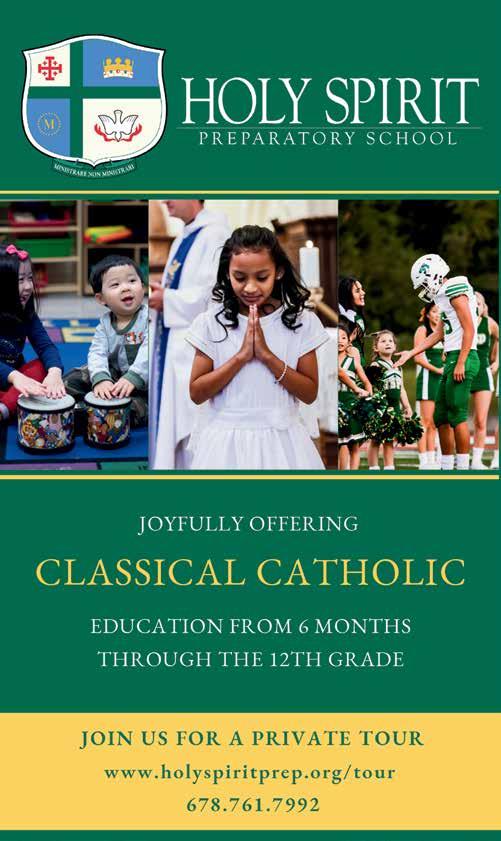

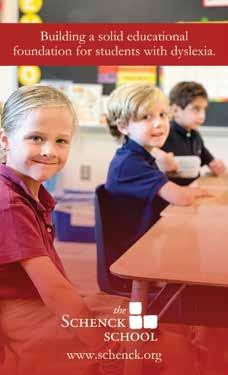
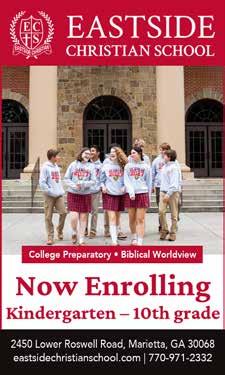
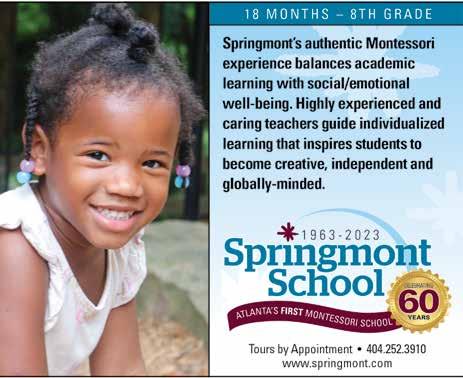

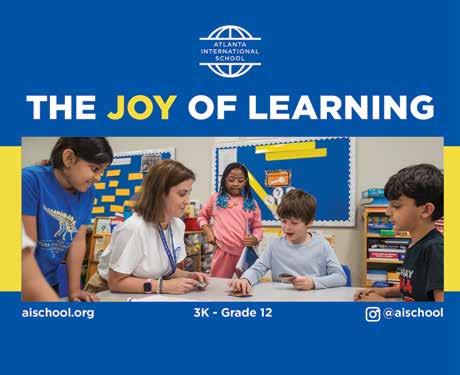
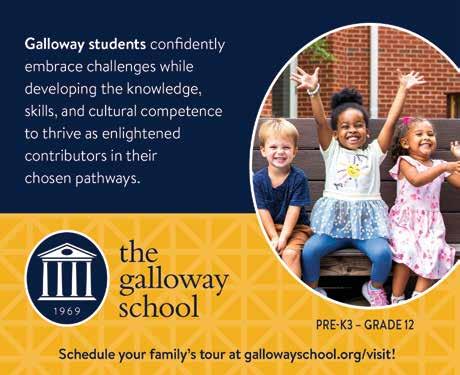


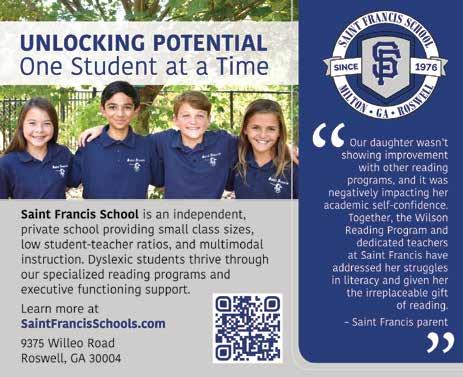


Duluth A successful mix of small-town charm and booming economic growth, Duluth plays host to many major corporations and is also home to numerous golf clubs, private tennis clubs and parks. The city prides itself on accommodating a growing, diverse population.
Dunwoody A popular community among young and established professionals alike, Dunwoody is often referred to as the “tennis set” neighborhood because of its numerous recreational outlets. Its location provides suburban living close enough to the city.

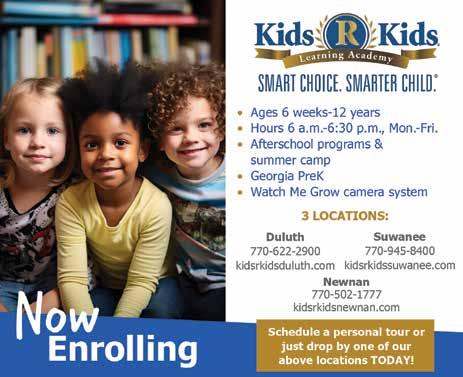
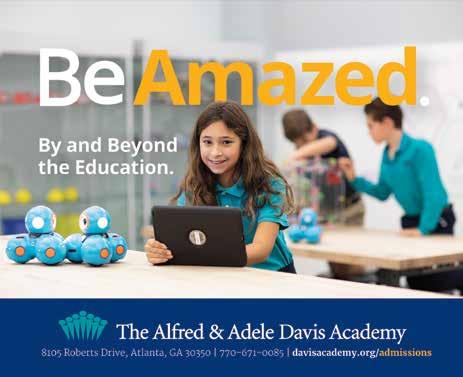
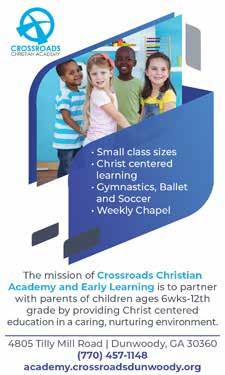
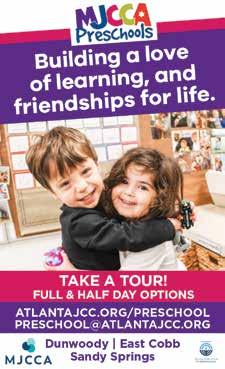
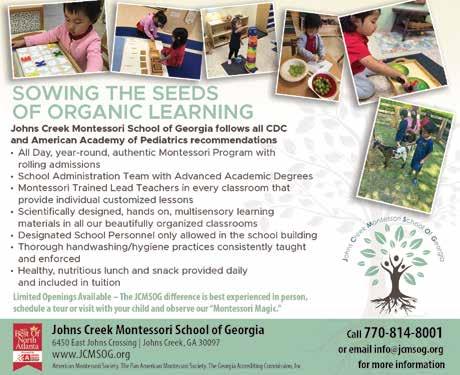
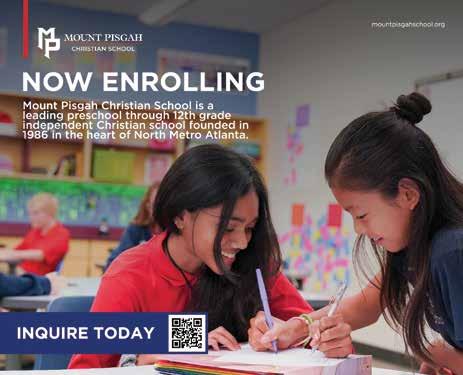
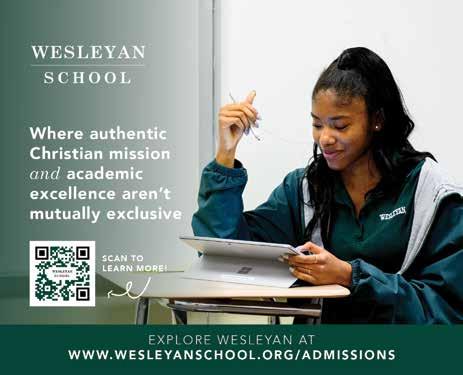




Decatur The county seat of DeKalb County, Decatur’s small-town charm revolves around the Courthouse Square, which features trendy restaurants and shopping, entertainment options and special events, including its annual summer beach bash.
Lawrenceville Located in the heart of Gwinnett County and known as “Crepe Myrtle City,” Lawrenceville is Atlanta’s second oldest city. Its historic downtown square, which has been revitalized, is home to a variety of shops, restaurants and community events.
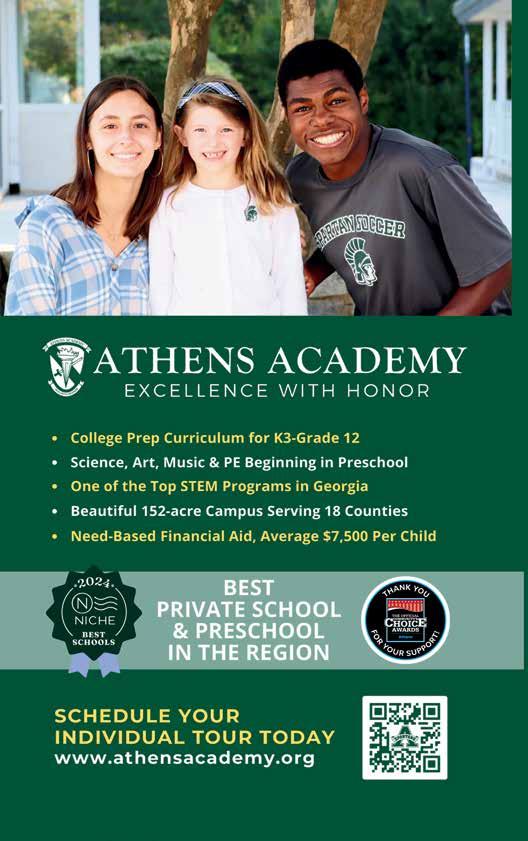
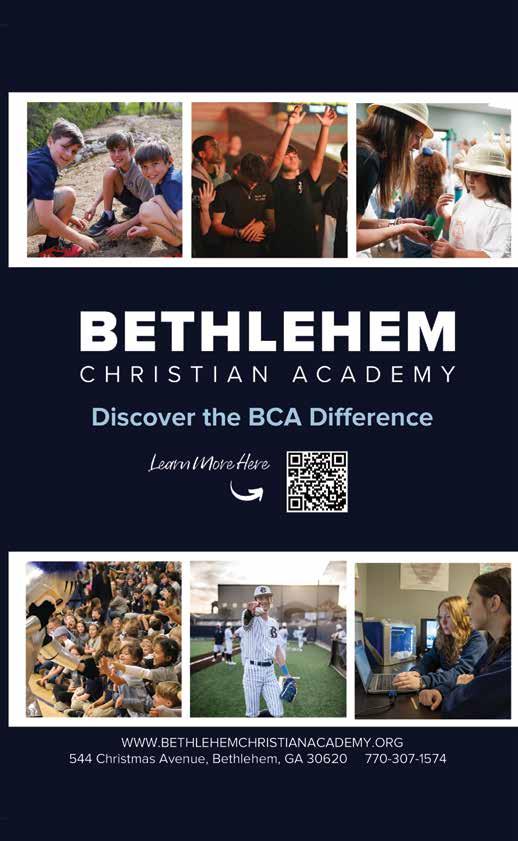
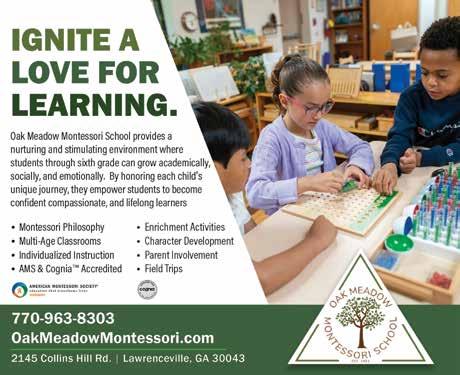
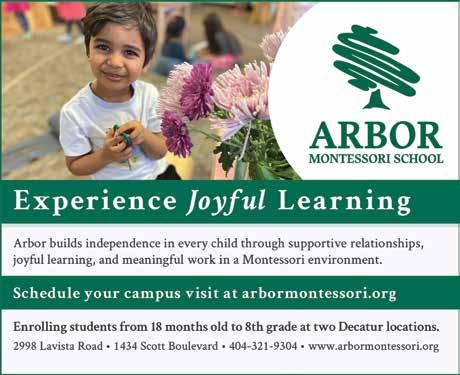
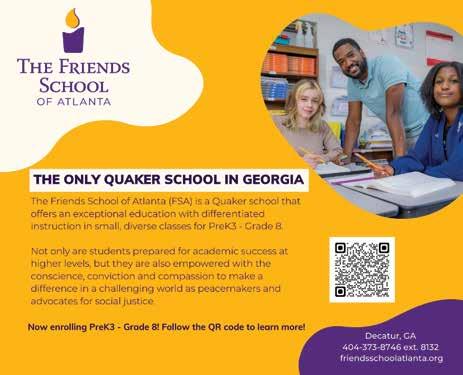
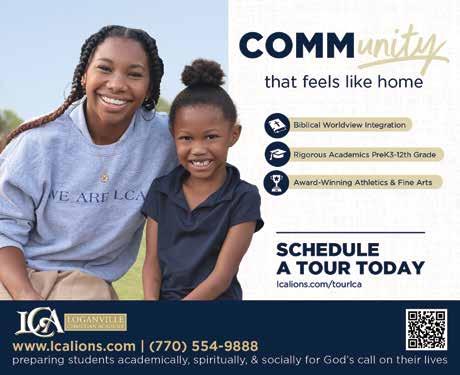
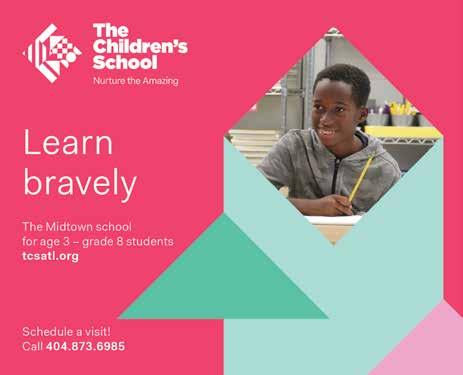
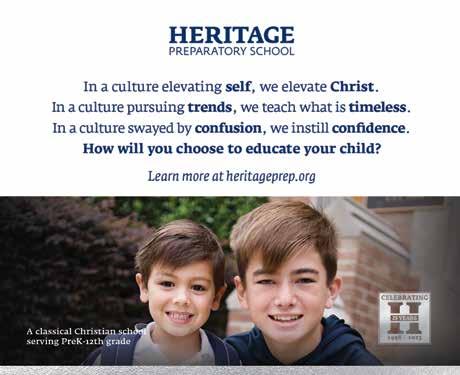
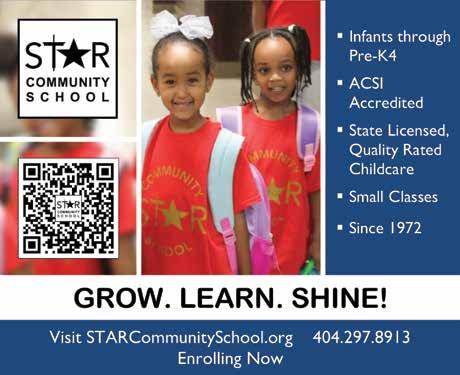

East Point The up-and-coming East Point area combines the charm of a small town with conveniences of a big city. Residents enjoy the city’s prime location near the Hartsfield-Jackson Atlanta International Airport, MARTA and Downtown Atlanta.
Fairburn Less than half an hour from Atlanta, Fairburn is filled with historic buildings and boasts a peaceful, smalltown atmosphere. The city is home to the annual Georgia Renaissance Festival and the local campus of Georgia Military College.
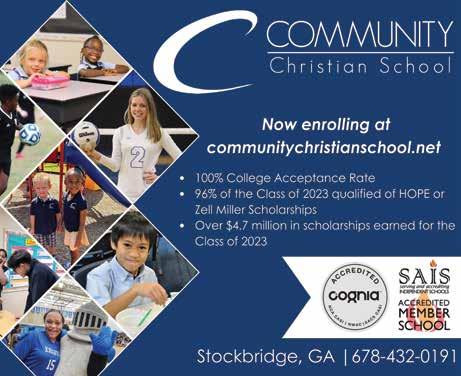


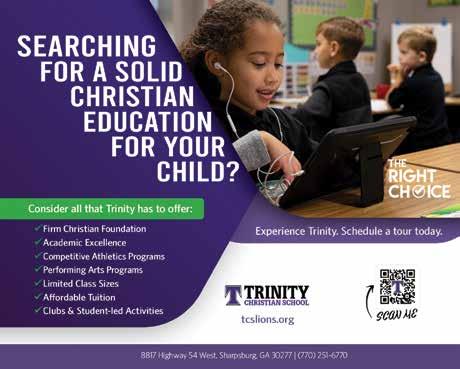
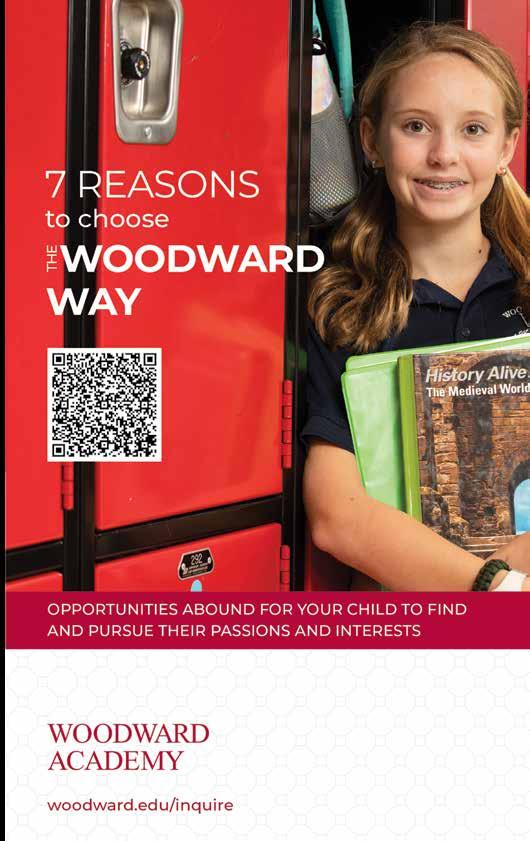


Acworth Surrounded by two lakes and 12 parks, Acworth offers plenty of recreation opportunities. Located 35 miles northwest of Atlanta, the town is convenient to both I-75 and Highway 41. Acworth is designated as a Georgia Main Street City.
Douglasville Located west of Atlanta on I-20, Douglasville has easy access to all that Atlanta offers. Listed on the National Register of Historic Places, Downtown Douglasville’s historic district is an outstanding example of a turn-ofthe-century southern railroad town.
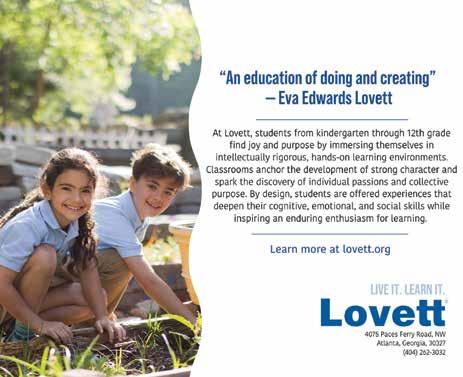
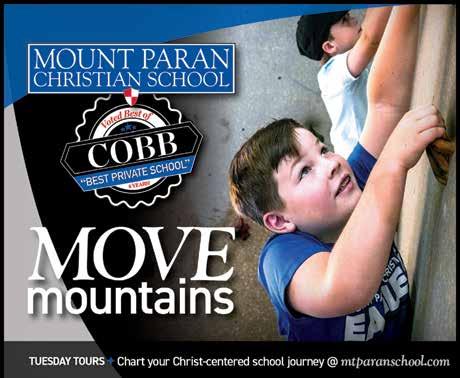
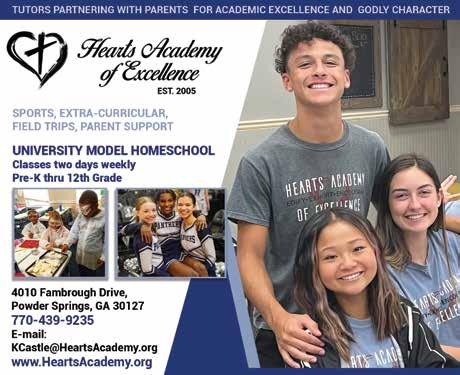
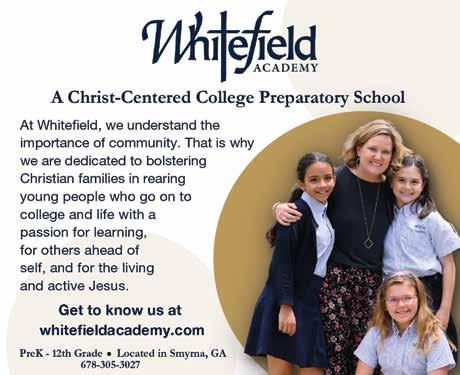
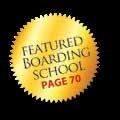
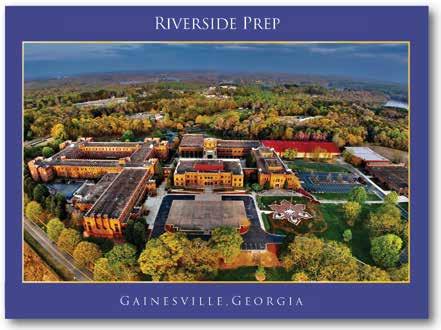

There are many benefits of a boarding school education. Boarding schools are an option for students seeking a more independent learning experience. Because students generally live on campus, learning takes place in and out of the classroom almost on a 24-hour basis.
When selecting a boarding school, it is important to visit the school campus, but representatives from many boarding schools visit Metro Atlanta throughout the year—contact each school for specific dates.




At Riverside Prep, your son will join a brotherhood as he learns to channel his energy in service of becoming a good man. The school’s cadets thrive in a collaborative environment while practicing, playing and creating.
Here, young men love a challenge. They learn when to lead, when to follow and when to team up in service of the whole. Your son will reach new heights because Riverside is deeply commited to creating a structured learning environment that knows how boys learn best.

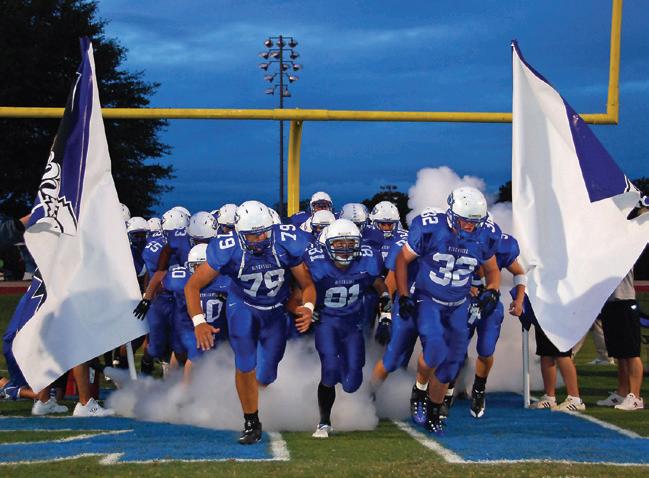
High expectations of each cadet are clear, and your son will see the importance of his role in the pursuit of integrity and honor. Riverside’s graduates live productive and fulfilling lives because they apply the life skills sharpened at the school—to themselves, to college, to their families and to their careers. At Riverside, your son will discover the self-confidence, motivation, commitment and resolve to achieve any goal with courage, confidence and respect. Riverside is located at 2001 Riverside Drive, Gainesville, GA 30501. For more information, call 770-532-6251 or visit riversideprep.org
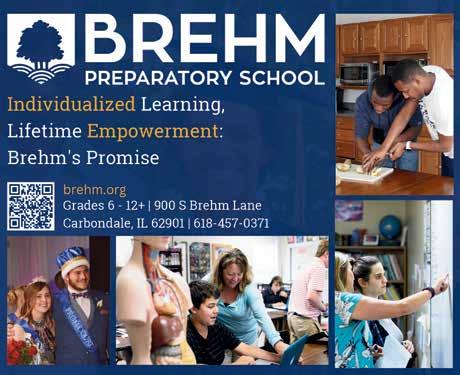
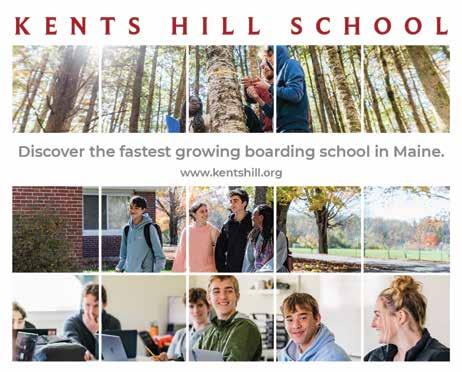
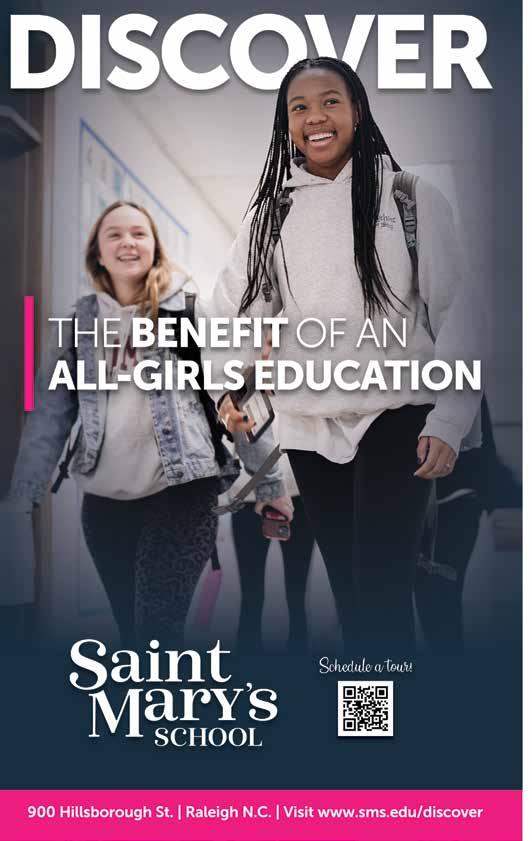


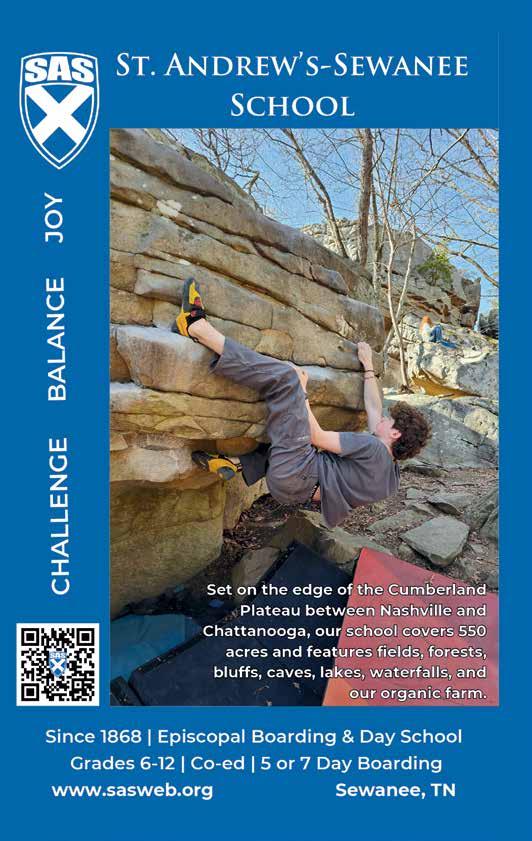
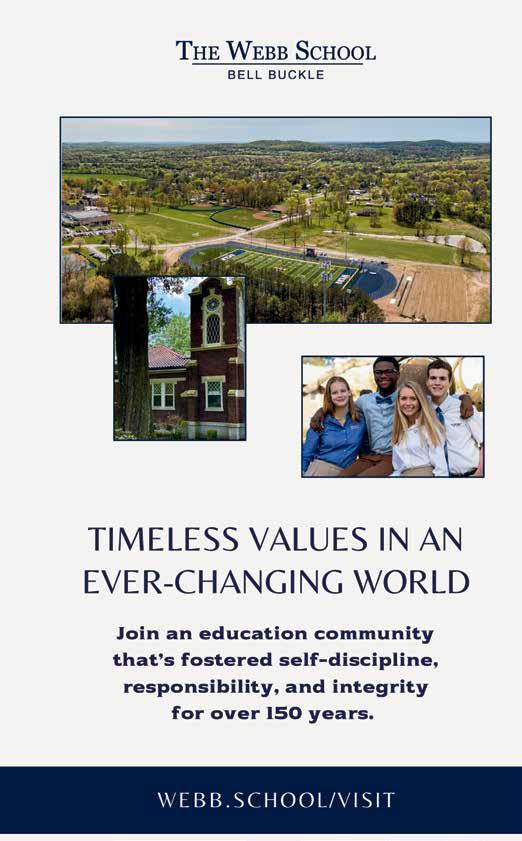

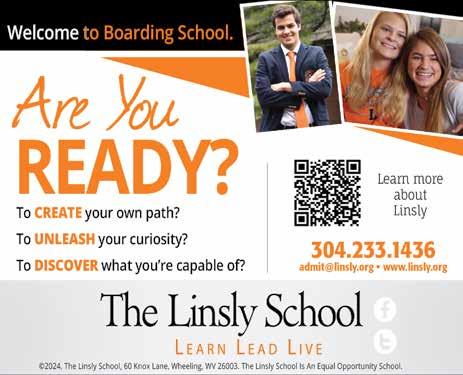
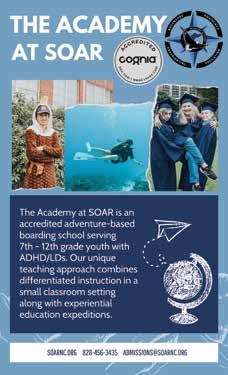
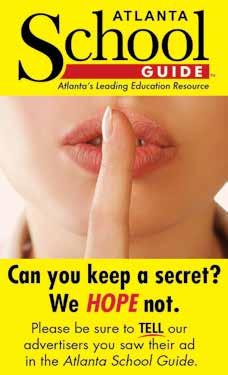

Avariety of improvements and innovative programs in Georgia’s public school systems have resulted in many stellar elementary, middle and high schools across the metro area. Different school systems feature specialized programs and academic opportunities, such as magnet, charter, vocational or alternative schools, to suit their respective students, parents and communities. However, despite variations in programming and academic offerings, all public schools must offer instruction aligned with standards approved by the Georgia Board of Education. Here is a county-by-county guide to metro Atlanta’s public school systems. For more information about the Georgia Department of Education, call 404-656-2800 or visit gadoe.org. u
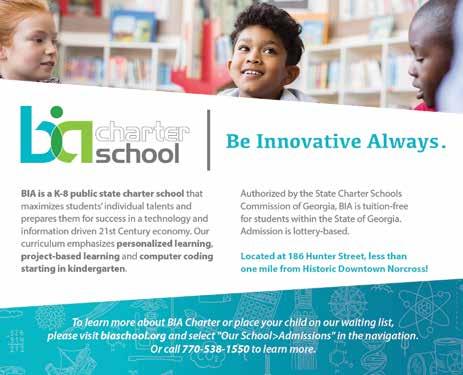
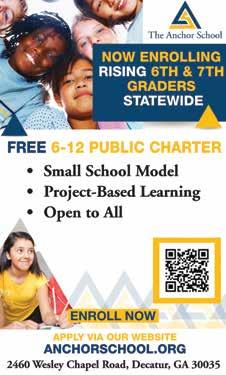

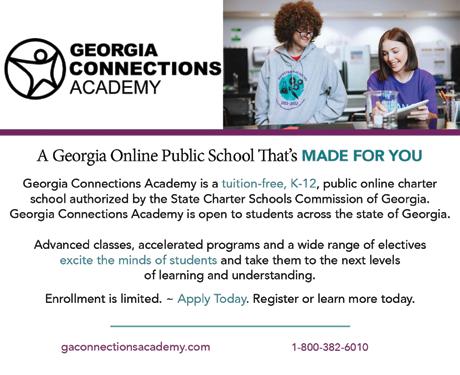
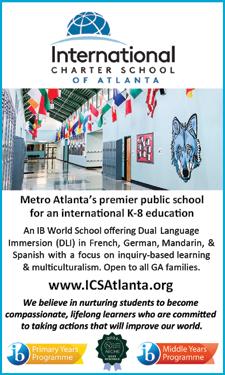
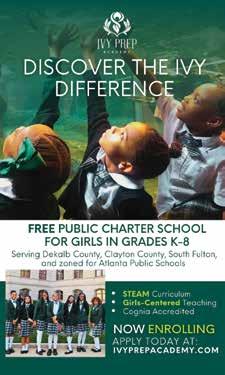
Board of Education
770-606-5800
bartow.k12.ga.us

Board of Education
770-479-1871
cherokeek12.net

Number of Schools
Elementary 12
Middle 4
High 3
Career Academy 1
Virtual Academy 1
Total # of Students: 14,156
Student Spending: $12,424
2023 Mean Georgia Milestone Scores:
3rd: (ELA) 498 (M) 524
5th: (ELA) 509 (M) 511
8th: (ELA) 508 (M) 512
2023 Average SAT: 1027
Top 3 Schools by Average 2023 SAT Score
Woodland High 1058
Adairsville High 1019
Cass High 1011
What’s New: In March, Adairsville High and its five-member Algebra 1 collaboration team won the most prestigious award given by the Bartow County School System, the A-Team Award. The team is comprised of students Melissa Winters, Amanda Jones, James Whittemore, Madison Hilton and Brent West.
2023 Mean Georgia Milestone Scores:
3rd: (ELA) 517 (M) 537
5th: (ELA) 524 (M) 535
8th: (ELA) 519 (M) 526
2023 Average SAT: 1094
Top 5 Schools by Average 2023 SAT Score
Total # of Students: 42,016
Student Spending: $11,652
Sequoyah High 1112
Creekview High 1102
Woodstock High 1098
Cherokee High 1092
River Ridge High 1081
What’s New: Two Cherokee County School District schools recently were recognized for their support of the Georgia Department of Education’s Georgia Schools Care project, Mountain Road Elementary and River Ridge High.
2023 Mean Georgia Milestone Scores:
3rd: (ELA) 467 (M) 495
5th: (ELA) 486 (M) 476
8th: (ELA) 495 (M) 483
2023 Average SAT: 919
Top 5 Schools by Average 2023 SAT Score
Elite Scholars Academy 1123
M. E. Stilwell School of the Art 980
Morrow High 959
Jonesboro High 928
Total
North Clayton High 922
What’s New: In March, the district revealed the winners of it’s annual Transportation Department’s School Bus Safety Poster Contest.

Board of Education
770-426-3300 cobbk12.org
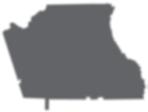
Board of Education
770-254-2800 cowetaschools.net

Board of Education
678-676-1200 dekalbschoolsga.org
2023 Mean Georgia Milestone Scores:
3rd: (ELA) 518 (M) 527
5th: (ELA) 523 (M) 522
8th: (ELA) 524 (M) 524
2023 Average SAT: 1104
Top 5 Schools by Average 2023 SAT Score
Walton High School 1255
Wheeler High 1184
Lassiter High 1183
Alan C. Pope High 1179
Kell High School 1063
What’s New: Allatoona High School special education teachers
Ashley Dinkel and Jacob Longacre were recently recognized by the Cobb County Schools with the Spotlight Award.
2023 Mean Georgia Milestone Scores:
3rd: (ELA) 519 (M) 530
5th: (ELA) 521 (M) 519
8th: (ELA) 520 (M) 518
2023 Average SAT: 1068
Top 3 Schools by Average 2023 SAT Score
Northgate High 1105
East Coweta High 1057
Total
Newnan High 1055
What’s New: All three of the Coweta County School System’s high schools (Northgate, Newnan and East Coweta) recently were named 2024 Advanced Placement Honor Schools.
2023 Mean Georgia Milestone Scores:
3rd: (ELA) 489 (M) 508
5th: (ELA) 500 (M) 492
8th: (ELA) 504 (M) 493
2023 Average SAT: 993
Top 5 Schools by Average
2023 SAT Score
Total
Chamblee Charter High 1176
DeKalb School of the Arts 1131
Dunwoody High 1109
Lakeside High 1100
Druid Hills High 1095
What’s New: Clarkston High School senior Kira Farris recently published “The Unspoken Words,” a 101-page book of poetry. She wrote it to channel her anger and other emotions after dealing with a difficult situation involving a boy a few years ago.
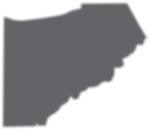
Board of Education 770-651-2000 dcssga.org
Number of Schools
Elementary 20 Middle 8 High 5 Centers 3 Charter 1 Virtual 1
Total # of Students: 25,770
Student Spending: $11,772
2023 Mean Georgia Milestone Scores:
3rd: (ELA) 498 (M) 511
5th: (ELA) 506 (M) 496
8th: (ELA) 517 (M) 500
2023 Average SAT: 984
Top 5 Schools by Average 2023 SAT Score
Alexander High 1026
Chapel Hill High 1004
Douglas County High 996
Lithia Springs High 944
New Manchester High 928
What’s New: Students in Brooke Morris’ Early Childhood
Education 3 class at Alexander High School recently entered the sewing world, making comfort bears for children experiencing stress. It’s the second time her class has done that.
2023 Mean Georgia Milestone Scores:
3rd: (ELA) 535 (M) 544
5th: (ELA) 538 (M) 542
8th: (ELA) 544 (M) 553
2023 Average SAT: 1123
Board of Education
770-460-3990 fcboe.org
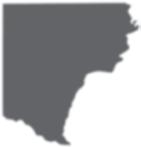
Board of Education
770-887-2461
forsyth.k12.ga.us
Total # of Students: 19,869
Student Spending: $13,036
Top 5 Schools by Average 2023 SAT Score
McIntosh High 1175
Starr’s Mill High 1164
Whitewater High 1115
Sandy Creek High 1063
Fayette County High 1027
What’s New: Two Fayette County students were victorious at the 2024 Young Georgia Authors contest: Bella Grimmage of Peeples Elementary and Hailey Frame of Inman Elementary.
Number of Schools
2023 Mean Georgia Milestone Scores:
3rd: (ELA) 537 (M) 557
5th: (ELA) 541 (M) 562
8th: (ELA) 538 (M) 554
2023 Average SAT: 1177
Top 5 Schools by Average 2023 SAT Score
Total
Lambert High 1254
Alliance Academy 1239
South Forsyth High 1218
Denmark High 1168
Forsyth Central 1133
What’s New: In March, the Forsyth County Board of Education voted to choose Mitch Young as the sole finalist to be the district’s next superintendent of schools. He will replace Jeff Bearden, who will retire Nov. 1. Young, the current deputy superintendent, has spent 17 years with the district.

Board
470-254-3600

Board of Education
770-229-3700 gscs.org

Board of Education
678-301-6000 gcpsk12.org
Total # of Students: 88,043
Student Spending: $14,035
2023 Mean Georgia Milestone Scores:
3rd: (ELA) 525 (M) 540
5th: (ELA) 529 (M) 528
8th: (ELA) 529 (M) 520
2023 Average SAT: 1085
Top 5 Schools by Average 2023 SAT Score
Northview High 1263
Chattahoochee High 1225
Johns Creek High 1219
Alpharetta High 1214
Milton High 1163
What’s New: In March, New Prospect Elementary hosted a Daffodil Project blooming ceremony. Aimed at creating a living memorial for the 1.5 million children who died in the Holocaust, the Project helps make an historic issue relatable to students.
2023 Mean Georgia Milestone Scores:
3rd: (ELA) 474 (M) 498
5th: (ELA) 484 (M) 482
8th: (ELA) 490 (M) 489
2023 Average SAT: 970
Top 2 Schools by Average 2023 SAT Score
1006 Griffin High 929
What’s New: Griffin-Spalding County Schools recently hosted its third annual Real Men Read event. More than 100 men, representing over 40 businesses, organizations and churches, read at all 11 elementary schools. This event furthers the district’s instructional vision for student success which states that students will read, write, speak and solve grade-level texts and tasks every day.
2023 Mean Georgia Milestone Scores:
3rd: (ELA) 513 (M) 530
5th: (ELA) 519 (M) 524
8th: (ELA) 520 (M) 526
2023 Average SAT: 1091
Top 5 Schools by Average 2023 SAT Score
Gwinnett School of Math, Science, and Technology 1393
North Gwinnett High 1192
Brookwood High 1135
Paul Duke STEM High 1135 Mill Creek High 1134
What’s New: Trickum Middle School Principal Ryan Queen recently won the Georgia Association of Secondary School Principals’ 2024 Georgia Principal of the Year award.
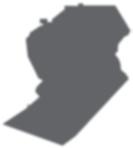
Board of Education
770-534-1080 hallco.org
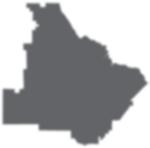
Board of Education
770-957-6601
schoolwires.henry.k12.ga.us

Board of Education
770-443-8000 paulding.k12.ga.us
Total # of Students: 27,245
Student Spending: $11,504
2023 Mean Georgia Milestone Scores:
3rd: (ELA) 485 (M) 511
5th: (ELA) 498 (M) 503
8th: (ELA) 501 (M) 506
2023 Average SAT: 1040
Top 5 Schools by Average 2023 SAT Score
North Hall High 1085
Flowery Branch High 1085
Chestatee High 1021
Cherokee Bluff High 1016
East Hall High 1012
What’s New: April Cox, Hall County Schools’ assistant director of nutrition operations, recently was honored by being elected president-elect of the Georgia School Nutrition Association (GSNA).
2023 Mean Georgia Milestone Scores:
3rd: (ELA) 489 (M) 508
5th: (ELA) 501 (M) 491
8th: (ELA) 507 (M) 495
2023 Average SAT: 990
Total # of Students: 43,258 Student Spending: $10,975
Top 5 Schools by Average 2023 SAT Score Union Grove High 1048 Ola High 1044 Eagle’s Landing High 994 Dutchtown High 980 Woodland High 976
What’s New: The Henry County Board of Education recently unanimously voted to appoint Carl Knowlton as the school district’s interim superintendent.
2023 Mean Georgia Milestone Scores:
3rd: (ELA) 504 (M) 521
5th: (ELA) 514 (M) 512
8th: (ELA) 516 (M) 509
2023 Average SAT: 1017
Total # of Students:
Top 5 Schools by Average 2023 SAT Score
Paulding County High 1038
North Paulding High 1030
East Paulding High 1000
South Paulding High 996
Hiram High 996
What’s New: Hiram High School junior Guadalupe Diaz’s design recently was chosen as the winning graphic that will illustrate the Paulding County School District’s new graduate profile. The profile defines the district’s ideal graduate and will help align instructional efforts consistent with the district’s strategic plan.

Board of Education
770-483-4713
rockdaleschools.org
Total # of Students: 15,385 Student
2023 Mean Georgia Milestone Scores:
3rd: (ELA) 480 (M) 501
5th: (ELA) 501 (M) 483
8th: (ELA) 513 (M) 496
2023 Average SAT: 969
Top 3 Schools by Average 2023 SAT Score
Rockdale High 1001
Heritage High 962
Salem High 911
What’s New: This year, five Rockdale County Public Schools students were selected to attend the 2024 Georgia Governor’s Honors Program hosted by Georgia Southern University this summer.
Board of Education
404-802-3500
atlantapublicschools.us
Total # of Students:
49,660
Student Spending:
$22,921
2023 Mean Georgia Milestone Scores:
3rd: (ELA) 492 (M) 511
5th: (ELA) 503 (M) 498
8th: (ELA) 501 (M) 494
2023 Average SAT: 949
Top 5 Schools by Average 2023 SAT Score
Atlanta Classical Academy 1133 Midtown 1121 North Atlanta High 1070 KIPP Atlanta Collegiate Academy 1044 Charles R. Drew Charter High 999
What’s New: In March, the Maynard Jackson High School girls’ basketball team ended a remarkable season by winning the school’s first state championship in Macon. The Lady Jaguars did so by beating rival Midtown High School 58-44 in the Georgia High Schools Association Class 5A title game.
Board of Education
770-945-5035
bufordcityschools.org
Number of Schools
(K-1) 1
1st-3rd Grade Academy
Total # of Students: 5,946
Student Spending:
$12,591
2023 Mean Georgia Milestone Scores:
3rd: (ELA) 548 (M) 557
5th: (ELA) 545 (M) 554
8th: (ELA) 551 (M) 572
2023 Average SAT: 1161
What’s New: Lauren Tsouchlos recently was chosen as the 2024 Buford City School System’s Teacher of the Year. Tsouchlos, an English learner teacher at Buford Senior Academy, won the competition over four other finalists.
Board of Education
404-371-3601
csdecatur.net
Number of Schools Elementary 5 Middle 1
3rd-5th Grade Academy 1 4th & 5th Grade Academy 1 High 1 Early Learning Center 1 Virtual 1
Total # of Students: 5,509
Student Spending: $15,583
2023 Mean Georgia Milestone Scores:
3rd: (ELA) 549 (M) 559
5th: (ELA) 551 (M) 558
8th: (ELA) 547 (M) 537
2023 Average SAT: 1147
What’s New: Decatur High School was recently named a 2024 (Advanced Placement) AP Honor School by State Superintendent Richard Woods in three categories: AP School of Distinction, AP STEM School and AP STEM Achievement School.
Board of Education
770-536-5275
gcssk12.net
Number of Schools Elementary 6 Middle 2
1
Total # of Students: 8,144
Student Spending: $13,123
2023 Mean Georgia Milestone Scores:
3rd: (ELA) 475 (M) 501
5th: (ELA) 487 (M) 491
8th: (ELA) 493 (M) 490
2023 Average SAT: 955
What’s New: Ana Horman, a fourth-grade teacher at Mundy Mill Arts Academy, was named the Gainesville City School System’s 2024 District Teacher of the Year. She won over eight other finalists from the city’s eight other schools and will receive $10,000 from the Doug & Kay Ivester Foundation. Each school-level winner got $500.
Board of Education
Total # of Students:
2023 Mean Georgia Milestone Scores:
3rd: (ELA) 518 (M) 534
5th: (ELA) 516 (M) 521
8th: (ELA) 509 (M) 506
2023 Average SAT: 1052
What’s New: The Marietta City Schools district recently honored the achievements of students with exceptionalities at the second annual Yes I Can! Awards ceremony. All 12 schools in the district were represented as 28 students were recognized on stage at the Marietta Performing Arts Center. During the ceremony, the district also honored five employees and one community partner for their contributions and for supporting students with disabilities.










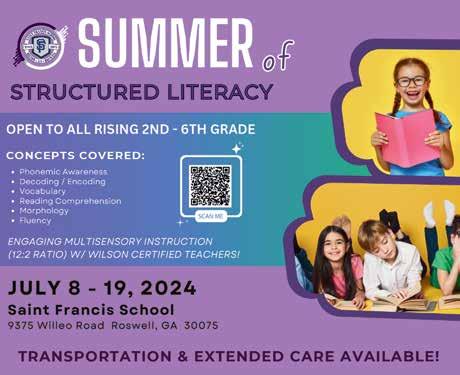

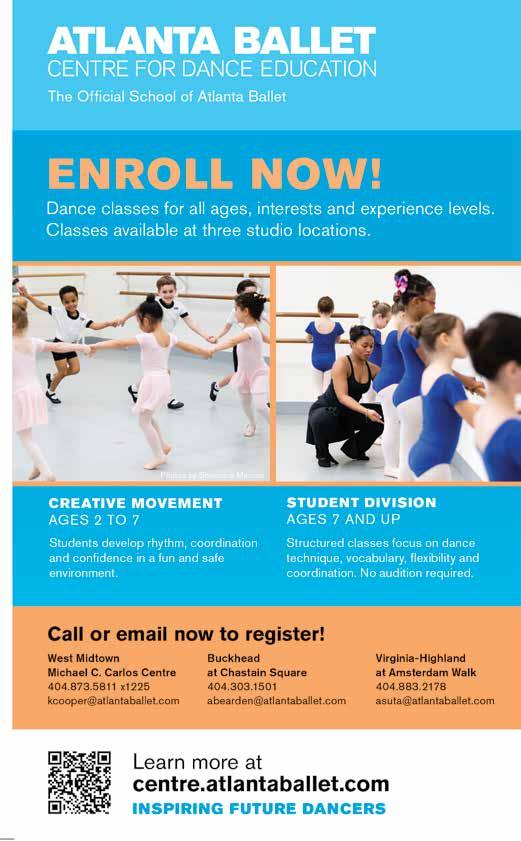

Atlanta Ballet Centre for Dance Education, the official school of Atlanta Ballet, has been inspiring future dancers since 1996. Accredited by the National Association of Schools of Dance, the Centre for Dance Education (Centre) has become one of the top dance education facilities in the country and continues to set a high standard for excellence. Offering dance classes for all ages, interests and experience levels, the Centre is dedicated to providing a nurturing experience in the art of dance that aids in the physical, intellectual and artistic development of students. Overseen by Dean Sharon Story, the Centre provides an opportunity for everyone in the community, no matter their age or experience, to discover the joys of dance and achieve their goals and dreams in a non-competitive atmosphere.
Creative Movement classes (ages 2 to 7) introduce young children to dance in a fun and safe setting, while developing rhythm, coordination and confidence. Intermediate students (ages 7 and up) enjoy ballet technique classes and explore other dance
styles and genres, including pre-pointe/pointe, jazz, tap and modern. The Centre’s instructors are among the best in Atlanta, including current and former members of Atlanta Ballet and other professional dance organizations from around the world. Each year, over 200 student dancers, ages 6 and up, are selected for roles of Chicks, Young Mice, Toy Soldiers and Party Children in The Nutcracker, where they share the stage with Atlanta Ballet and Atlanta Ballet 2 dancers. Every student has the opportunity to perform at the annual spring concert. The Centre also offers an extensive summer program to keep dancers moving over the summer months and to bridge the gap to fall lessons.
Fall enrollment in Creative Movement and Student Division classes is now open at three studio locations, in West Midtown, Buckhead and Virginia-Highland. No audition is required.
For more information, call 404-873-5811 or visit centre.atlantaballet.com.


